
Jeremy Pierce (parableman)
I teach philosophy at Le Moyne College and Syracuse University. I'm working on a Ph.D. dissertation on the metaphysics of race at Syracuse University. I read commentaries in my spare time and have been writing reviews and collecting information on forthcoming commentaries at my blog Parableman (http://parablemania.ektopos.com).
Occupation
Philosophy Instructor
Education
A.B.D. for Ph.D. in philosophy, Syracuse University
Website
http://parablemania.ektopos.com/
Libraries
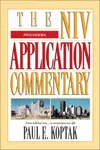

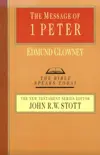

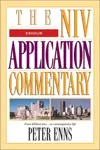

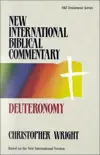

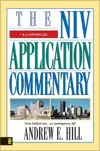

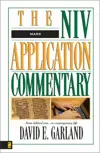

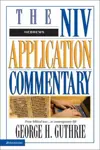

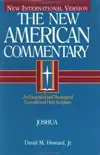

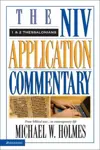

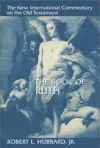

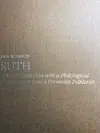

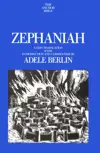

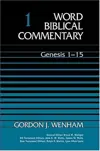


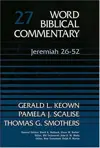

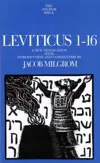


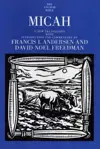

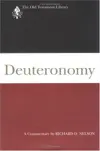

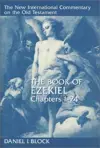


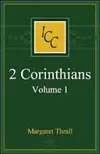


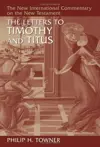

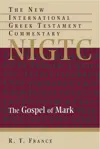

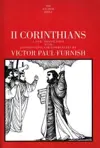

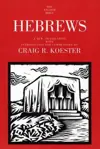

![The Epistle to the Philippians [Withdrawn]](https://bestcommentaries.com/images/bookthumbs/3702-thumb.webp)
![The Epistle to the Philippians [Withdrawn]](https://bestcommentaries.com/images/bookthumbs/3702-thumb.webp)
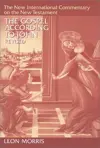



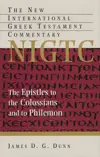

Reviews
“Galatians” in Second Corinthians to Philemon. NIB. Abingdon Press, 2000.
Richard Hays gives a popular-level exposition of a New Perspective approach in the NIB. This commentary is bound with a number of others in a thick volume that makes it cumbersome to use, although it's not as expensive as some volumes of this size (900 pages for II Corinthians through Philemon). Many academic libraries have this series available for reference, but often they will treat it as a reference work and won't let you check it out. Hays is a good writer and often has insightful things to say, but I disagree enough with his general approach that I can't give it a strong recommendation. Hays sides firmly with the New Perspective, and he's been strongly influenced by Martyn's commentary. It might be a quicker read for someone who wants to get Martyn's sort of view without wading through the whole Anchor Yale Bible volume. This would be more helpful for someone teaching Galatians than Martyn or Dunn.
[Full Review]
Galatians. NIVAC. Zondervan, 1995.
Scot McKnight's NIVAC displays some of the strengths of the series, which include (a) presenting the basic message of the book (which in McKnight's case is heavily leaning toward a New Perspective interpretation, where the conflict is seen as being about social boundary markers rather than whether obedience to the law justifies), (b) identifying areas where Paul's language or assumptions involve cultural baggage or historical background that contemporary readers need help understanding and working through ways to help contemporary Christians understand those issues in our own terms, and (c) finding applications for our own day based on how the principles behind the text get transferred into the new context. The series tends to be light on exegesis. I disagree enough with the New Perspective approach that I wouldn't recommend this commentary as much as I would other volumes in the series, but McKnight is a good writer who has thought a lot about how the gospel works itself out in our lives. One reviewer thinks his New Perspective interpretation makes it much harder for him to find contemporary application than it would be if he accepted the traditional approach.
[Full Review]
Galatians. Herm. Fortress Press, 1979.
Hans Dieter Betz's Hermeneia is the first to engage in the kind of rhetorical analysis I discussed above (see Longenecker). Betz also sees far more Greco-Roman background in general, at the expense of the Jewish background that seems much more obviously involved. This commentary is important for academic study of Galatians, since it's been so influential, but I don't think it's of much value to the expositor, because of its level of detail and its less helpful overall approach.
[Full Review]
Galatians. REC. P&R Publishing, 2005.
Philip Ryken's REC defends the traditional approach very well. This is more of a series of expositions, actually based on sermons, than a commentary, but it's expository preaching of the sort that centers enough on good exegesis that it's helpful.
[Full Review]
Galatians. IVPNTC. InterVarsity Press, 1994.
Walter Hansen's IVPNTC takes the unusual approach of holding to a later date and North Galatian location while trying to reconcile it with Acts. I'm not sure he succeeds. I have a hard time with this series, because it tries to play to two audiences, having a flowing exposition at the top and some footnotes not clearly tied to any location in the main text (as footnotes usually are), and the level of detail in the footnotes is significant but without sufficient space to do so properly, so it requires pick-and-choose approach to which exegetical issues will get coverage. This is D.A. Carson's favorite introductory-level commentary on Galatians, and that's even despite his disagreements with Hansen over the historical issues.
[Full Review]
Grace in Galatia: A Commentary on Paul's Letter to the Galatians. SRC. Eerdmans, 1998.
Ben Witherington's socio-rhetorical commentary is strong on both Jewish and Greco-Roman background, and he's much better than most commentators at literary matters, but he tends to do a lot with the rhetorical analysis I've criticized above (see Longenecker). I haven't spent a lot of time in this commentary. I don't have a good read on how Witherington handles the New Perspective issues, but I know that he supports South Galatia and an early date for the epistle. If his approach to the historical issues and the difficult questions with how Acts fits with Galatians is anything like his treatment of those issues in his Acts commentary, I would expect it to be superb. Witherington is known for zooming through commentaries quickly, and I think that hurts the quality of his work. A commentary someone has been working on for over a decade is bound to have more long-term thought involved in it than one that takes a couple years. My biggest pet peeve with Witherington is that he's extremely fair to opponents whose assumptions about scripture are far from his own (e.g. theological liberals) but grossly unfair to those who share his high view of scripture but have reach theological conclusions (complementarians and Calvinists especially).
[Full Review]
The Epistle to the Galatians. NICNT. Eerdmans, 1988.
Ronald Fung's NICNT defends the traditional approach (as opposed to the New Perspective), but I don't think he engages much with New Perspective supporters. I haven't looked much at it. This is a solid commentary, by all accounts, but no one seems to think it stands out in any way, and everything Fung is good at can probably be found in other commentaries. My one reason for still considering it would be that it may be more balanced than some of the commentaries that are strong in some ways but not in others, and it probably does offer more toward expositing the text than some of the more detailed works above. One reviewer criticizes Fung for relying too much on Kittel's word-studies.
[Full Review]
Galatians. NAC. Broadman & Holman, 1994.
Timothy George's NAC is strongest on the theological message of the text, and he does a great job placing his discussion in the light of the history of commentary on Galatians. He's known as something of a Reformation historian, but his historical knowledge of church history as a whole comes out in this commentary. Unlike some critics of the New Perspective, he does treat their arguments explicitly at times, but he interacts a lot less with contemporary scholarship than most commentaries of this size would. In many ways this isn't a typical commentary, but I've found his comments helpful and a nice complement to a more traditional commentary. He is more concerned with the issues an expositor would care about than, say, Bruce or Longenecker.
[Full Review]
The Epistle to the Galatians. BNTC. Hendrickson, 1993.
James Dunn's BNTC is a standard New Perspective mid-level commentary. I haven't spent a lot of time in it myself, but Dunn's work is one of the more significant places to look for a New Perspective approach to Galatians. Dunn's key thesis is that Paul wasn't criticizing what we since the Reformation call works-based salvation. He was rather simply resisting the Jewish believers' claim that only Jews can be saved.
[Full Review]
Galatians. AYB. Yale University Press, 1997.
J.L. Martyn's AB is too academically-important to ignore if you're doing academic work. I looked at it enough to gain a respect for his command of the letter and the literature on it. His approach is a bit idiosyncratic, but he's not as lone ranger. He's managed to influence Galatians scholarship significantly with this work. This commentary is incredibly detailed, even for an Anchor Yale Bible volume, and will be of a lot less use to someone just preaching or leading a Bible study on Galatians. He tends to side more with the New Perspective than with the traditional Protestant approach (but I believe he is Catholic himself), and he favors the later date and North Galatian location that are usually seen to conflict with Acts (and thus tends to dismiss the historicity of Luke's account in Acts). Carson says he's weak on salvation-historical elements and thinks he hasn't "got to the bottom of Paul's understanding of the relationships between law and grace". His approach emphasizes the corporate, even cosmic, aspects of the gospel so much that there's not much attention given to how the gospel affects individuals. He doesn't have much time for legal/forensic elements to the gospel.
[Full Review]
Galatians. WBC. Thomas Nelson, 1990.
Richard Longenecker's WBC is a lot like Bruce's NIGTC in some ways, but I'm less satisfied with it. I detest the format of the WBC, which doesn't help, but I also have more problems with how Longenecker carries out his task as a commentator. Like Fee, he tries to find middle ground between the New Perspective and the traditional view, and I thought he gave up more ground to the New Perspective than I thought the evidence warrants. I've seen reviewers criticize him of trying to reconcile the two approaches in a way that leads to outright contradictions, but I didn't notice anything like that myself in the parts I read. In any case, Longenecker has an excellent command of the Jewish background to this letter. He's been criticized (by D.A. Carson, for example) for being weak in his treatment of passages dealing with the Holy Spirit (something you certainly wouldn't find with Fee).
Longenecker supports a relatively early date for the epistle and the South Galatian provenance (which I think is almost certainly correct), but he works out the chronology in comparison with Acts in an idiosyncratic way, one that I'm unconvinced of (and not even sure if it works). He does defend the historicity and complementarity of both Galatians and Acts. Yet Longenecker thinks Paul unfairly caricatures his opponents, a view that I find at odds with the high view of scripture that he otherwise seems to hold.
Longenecker tries to read Galatians as a formal Greco-Roman oration (i.e. what's called rhetorical analysis), an approach that seems to me to be entirely arbitrary. It may well be that some of the forms of Greco-Roman argumentation affected Paul's training, which was largely Semitic teaching form the Jewish rabbi Gamaliel. But trying to fit the whole structure of Paul's letter into this kind of oration format seems a bit of a stretch to my mind. Until Fee, I considered this the second most important commentary to have, after Bruce. But I think Fee captures his strengths well enough that I'm considering selling this volume once I have Moo's BECNT.
[Full Review]
Galatians. PC. Deo Publishing, 2008.
Gordon Fee's recent commentary in the Pentecostal Commentaries series is very good. Fee has an outstanding reputation as a commentator, for good reason. He's one of the most respected Pauline scholars of our day, and he's especially pastorally-minded. One element Fee contributes that doesn't occur quite as much in the other commentaries I've spent a lot of time in is in the overall flow of thought of the epistle. He's constantly considering smaller passages in the light of the general train of thought Paul has over the course of the letter, and he's particularly good at the kind of structural issues that Bruce tends to be weaker on.
He's also theologically stronger than Bruce, especially on the matters he's spent the most time thinking about, which includes christology and pneumatology. Galatians is particularly important on the Holy Spirit, so it's nice to have Fee on this book for that alone. On historical issues, I'm less convinced by Fee's reconstruction of events than I am of Bruce's, but he himself doesn't seem as confident of his approach as some do. He does insist on the historicity of both Galatians and Acts, unlike some who depart from the more traditional approach represented in Bruce. On New Perspective issues, he strikes me as trying to maintain a moderating approach between the traditional Protestant view and the New Perspective. I tend to think he's moderated too much away from the traditional approach. Given my criticism of Bruce on Gal 3:28, I should say that Fee does not make the same mistake, even though he's strongly committed to egalitarianism. He rightly insists that egalitarians who try to extend its use to issues beyond the gospel itself are going beyond what the text says.
Given that this is from a series many people might not be familiar with, it's worth pointing out that this isn't intended to be an exhaustive commentary series, with lots of technical exegetical details, but it's also not just an applicational commentary or something like that. Fee himself might bemoan the fact that Pentecostals aren't as well-represented in biblical studies as he'd like, and Pentecostals sometimes have a bad reputation of focusing mostly on application at the expense of careful exegesis. But potential readers shouldn't let those facts discourage them from purchasing or reading this commentary. Fee does include most of the major issues that should come up in exegetical discussion, just not with exhaustive coverage of every option or with the level of detail you'll find in a more academic commentary.
[Full Review]
The Epistle to the Galatians. NIGTC. Eerdmans, 1982.
I do think F.F. Bruce's NIGTC is one of the better commentaries out there. It's getting dated, especially given the New Perspective on Paul that Bruce doesn't spend a lot of time interacting with, since it was pretty much brand new during the final years he was working on this volume. Bruce tends to be stronger on historical and language, especially on smaller details, and weaker on theology and broader structure. (Carson gives two examples of weaker areas: law/grace and old/new covenants.) Bruce defends the traditional Protestant approach that the New Perspective responds to, even if he doesn't spend a lot of time tackling the claims of particular proponents of the NPP. He argues for an early date and a South Galatian location, and he gives one of the most convincing accounts I've seen of how Galatians and Acts fit together, defending the historicity of both. Complementarians will be annoyed at his insistence on egalitarianism in Gal 3:28, which even a good number of egalitarians recognize as being about gospel equality rather than about what the implications of gospel equality are in marriage and in church governance. Most of the commentary isn't so ideologically-driven, however, and this is currently the first place I look on this book. I'm just not as inclined to look in only one place as I might be on other books.
[Full Review]
Nahum, Habakkuk, Zephaniah, Haggai, Zechariah, Malachi. AOTC. Abingdon Press, 2004.
Julia O'Brien's AOTC (2004) includes Nahum through Malachi. As with other volumes in this series, this is a popular-level exposition that tends toward the mainline, critical kind of theological perspective. For instance, she can at times consider prophecies to have been written after the fact (e.g. Haggai), and she treats some of the prophetic messages as immoral (e.g. Nahum's use of rape as part of the judgment on Assyria, Malachi's supposed patriarchy). She seems very excited about Habakkuk's questions against God at the beginning of the book, with less attention to his later faith and trust in God. I can't complain about a lack of theological reflection, but it's not always theology sympathetic to the prophet's concerns.
O'Brien is often hesitant about text-critical solutions. She includes a special section on the contribution of each book to the overall Book of the Twelve of the minor prophets, but she thinks each individual book is a work of its own, and thus her Nahum commentary focuses on Habakkuk as a book rather than as a piece of the Book of the Twelve. O'Brien and Achtemeier will probably be the main choices for expositions among those who accept more critical views. My impression is that Achtemeier will be the more conservative of the two, while O'Brien will be the more thought-provoking.
[Full Review]
“Habakkuk” in The Minor Prophets: An Exegetical and Expository Commentary (in one volume). Baker Academic, 2009.
F.F. Bruce wrote the Habakkuk section of this multi-author commentary. Bruce was primarily a New Testament scholar, but he did occasionally write on the Old Testament. As with the whole series, he treats the exegesis and exposition separately, each running in parallel with the other, one on the top of the page and the other on the bottom. The exegesis deals with the Hebrew text and is scholarly in its approach. It's hard to read if you don't know Hebrew. I have been told by someone who knows Hebrew fairly well that he wasn't all that impressed at Bruce's exegesis. The exposition is intended to be readable to anyone. As with other commentaries by Bruce, theology is going to be a weakness.
What strikes me as thoroughly strange about this commentary is that the exegesis is on the Hebrew text and meant for scholars yet isn't too detailed. It picks out key details but isn't complete enough to count as a full-length scholarly commentary. Yet it's too difficult for someone less well-trained. The exposition is readable no matter who is reading it, but much of what supports the exposition is in the exegesis. It's for that reason that I can't recommend this commentary as a first choice for someone of any category of commentary reader. It's worth having as a supplement to a fuller and/or more readable work, but I don't put it as first place.
[Full Review]
Nahum, Habakkuk, and Zephaniah. OTL. Westminster John Knox, 1991.
J.J.M. Roberts seems to me to be a fairly standard representation of one strain of biblical scholarship throughout the mid-late 20th century. The overall tendency is to break the text down into its various components, looking at the meanings of all the words and the various grammatical constructions used, focusing at times on the historical background behind what's being said, with detailed discussion of the various textual traditions and an attempt to reconstruct what the original must have said. Roberts likes to emend the text rather than work hard to explain any coherent meaning in its current form.
There's usually a desire to find different sources for different parts of a work, although he is more conservative in defending the unity of Habakkuk than he is with the other two books he covers. He does consider the possibility that ch.3 is an earlier Psalm that the prophet incorporated, but he has little patience with the more common assertion that it was a later poem added to Habakkuk's work by a later hand. He does sometimes make connections with the New Testament and contemporary application, but he spends very little time even on how individual passages relate to the book as a whole, never mind moving to an even larger context than that.
This book is about as good as any in serving as a guide to exegesis in terms of the minutiae of the text, although Andersen has more detail. Like Andersen, however, the series is intended to be readable by non-scholars, and the level of detail on Hebrew language in this commentary is daunting for those who don't know the language, even if it's not quite as intimidating as Andersen. All told, this book is heavy wading for those who don't know Hebrew, and it isn't all that helpful for someone who wants what I want in a commentary, which is theological reflection and connections between this text and other parts of the Bible. It is nonetheless the standard critical commentary on the three prophets together, although I think Andersen takes that spot if you consider just commentaries on Habakkuk alone.
[Full Review]
Twelve Prophets, Volume 2. DSB. Westminster John Knox, 2006.
Peter Craigie had even less space to deal with than Baker did, something like half as many pages, and the Daily Study Bible series requires him to include the biblical text, which Baker doesn't do. For that reason he had to choose very carefully what to talk about. He did an admirable job. The commentary is suitable for devotional reading, and unlike many volumes in this series it really is suitable for that due to its more favorable attitude toward the authenticity of the text than some other writers in this series would have. Craigie raises the right sorts of theological questions. I was particularly impressed at his treatment of the justification by faith issue in ch.2, which avoids a kind of disjunctive thinking that I found in Robertson (who wants to remove any sense of faithfulness justifying, thinking that to contradict justification by faith). See the comments on my longer review of Robertson for more on that issue.
You don't see most of Craigie's exegesis, but he does explain some of his reasoning. It's much thinner in argument and explanation than would be ideal even for a popular-level commentary, but Craigie's volumes in this series are some of the best in it because he was so good at choosing what would be best to focus on. It's inexpensive and short enough that there's no reason not to read it in addition to whatever else you're going to read.
[Full Review]
Jonah, Nahum, Habakkuk, Zephaniah. NIVAC. Zondervan, 2004.
James Bruckner's commentary is a decent example of what the NIVAC series seeks to do. It gives a very brief exegesis, briefer even than Baker's. Part two of his treatment of each passage is his reflection on the general principles from the original context that might transfer to ours. Part three for each unit moves on to suggestions for how those principles might apply in our context. I only looked at the Zephaniah part of this commentary, but someone I know who read the whole book was considerably disappointed with his Original Meaning sections. I liked some of what I read in the Bridging Contexts sections. He doesn't simply moralize but rather spends time thinking through what principles in the text can be generalized to move toward other contexts. I didn't come away with a strong positive or negative impression of his Contemporary Application discussions. I know readers outside the U.S. complain that this series tends to focus on American examples, but the main point of the series is to model how to apply the second Bridging Contexts section in a concrete setting. Surely the author doesn't think those ways are the only ways they will apply or even the most important for every setting. If you approach this series in that way, I think it's often excellent.
[Full Review]
Nahum, Habakkuk, Zephaniah. TOTC. InterVarsity Press, 1989.
David Baker's Tyndale commentary lives up to everything this series intends. It's brief, but Baker uses his limited space wisely. He addresses many of the questions non-scholars might ask when reading the text. He deals with some of the more fundamental theological questions in a way many commentators won't, but he also deals with the more important of the historical and linguistic issues. He doesn't treat them in much depth, and there are less crucial issues that he doesn't treat at all that are interesting and worth looking into if you're preparing a Bible study or sermon, so this commentary shouldn't serve as the only or primary resource for something like that, but Baker is an enjoyable read, has a lot more than you'd expect in such a short treatment, and is probably second only to Robertson in terms of theological insight.
[Full Review]
Nahum, Habakkuk, Zephaniah. WEC. Moody Publishers, 1991.
Richard Patterson had the misfortune of writing his commentary for the WEC, a series that didn't last very long. Bible.org has seen to it to republish some of the volumes of that series, so they are now available again, but for a while this just wasn't easy to get. For that reason, it's had less of an impact than it should have had in Habakkuk studies.
Patterson is a careful scholar. I'd place this commentary at the same level as Robertson and Bailey. Robertson is stronger on theology, and Patterson is stronger on lexical issues and historical background. His treatment of linguistic matters seems exhaustive compared to Robertson, who in comparison seems almost to ignore it. He doesn't ignore theology, but it's not his main strength, and Robertson and Bailey both strike me as giving fuller treatments of those elements. Until Bailey came along, Robertson and Patterson complemented each other nicely. I still recommend Bailey as the best overall commentary, but if you have both of the others you're doing very well.
[Full Review]
Habakkuk. AYB. Yale University Press, 2001.
Francis Andersen's Anchor Bible volume on Habakkuk is the best of the mainstream academic commentaries. Anderson co-wrote the Anchor Bible volumes on Hosea, Amos, and Micah with David Noel Freedman, and he wrote the TOTC volume on Job by himself. Andersen is more conservative than most authors in this series and less conservative than most authors in the Tyndale series.
As with most Anchor Bible volumes, it is intended to be readable by non-scholars, using only transliteration and translation of Hebrew terms. However, it is extremely detailed on matters related to poetic structure, literary devices, word meanings, textual variants, and so on. It is hard to follow if you don't know a lot about the forms and features of Hebrew poetry, grammar, etc. On some matters, it is far more detailed than most pastors would want for use in sermon preparation. He uses lots of technical terminology without defining or explaining most of it. To a scholar, this is a great resource, with full argumentation as to his reasoning process. However, it should be left in the hands of scholars, since others will have a hard time understanding most of that reasoning.
Often the focus is just on producing the correct translation of the text, without connecting it up with the historical setting or theological meaning. Andersen does ultimately ground his theological reading in later revelation through Jesus Christ, and thus his interpretation of the book is Christian. However, it isn't much of a focus even in such a large volume. Andersen ultimately defends the unity of the book and the reality of predictive prophecy in the book. He strangely thinks "the righteous" in the book is just Habakkuk, and "the wicked" in the book are only Babylon and never Judeans, a conclusion I find hard to fit with the book (and indeed seems to me to miss one of the major points of the book).
[Full Review]
The Books of Nahum, Habakkuk, and Zephaniah. NICOT. Eerdmans, 1990.
O. Palmer Robertson's NICOT is probably my favorite Habakkuk commentary in terms of theology. His theological reflections are probing and get enough time to explore the issues, with more time than any of the other commentaries on the list given to the task of simply reflecting on what the text means for Habakkuk's view of God and Habakkuk's view of faith in God. It's much weaker on linguistic matters, sometimes not even addressing important issues that most of the other commentaries will spend some time on. It doesn't get first place primarily for that reason.
His perspective is conservative, evangelical, and explicitly Reformed. His expertise is in covenant theology, and he has a keen eye for seeing New Testament connections, although on occasion I think he reads a NT perspective into a text that may not have originally gone quite so far. I appreciated his willingness to defend Paul's appropriation of the justification by faith text in ch.2, although I found him too eager to rule out the possibility that faith and faithfulness are both in mind. It's a shame that Eerdmans has contracted a replacement for his commentary in this series this early, though Thomas Renz will probably produce a good commentary that will give more detail on the things Robertson doesn't focus much on.
[Full Review]
Micah, Nahum, Habakkuk, Zephaniah. NAC. Broadman & Holman, 1998.
Waylon Bailey's NAC is probably my favorite of all the commentaries I looked at. It isn't so detailed that it's hard to wade through, but he addresses most issues most people might ask of the text unless they're working on an academic paper. He deals with historical, theological and linguistic matters fairly well, and he's also concerned about connections with the New Testament. He's coming from a conservative evangelical perspective, but he's also good at presenting various views. This is my all-around recommendation for seeking the best balance of what I look for in a commentary. It doesn't shirk anything I consider truly important.
[Full Review]
Nahum, Habakkuk, Zephaniah, Haggai, Zechariah, Malachi. AOTC. Abingdon Press, 2004.
Julia O'Brien's AOTC (2004) includes Nahum through Malachi. As with other volumes in this series, this is a popular-level exposition that tends toward the mainline, critical kind of theological perspective. For instance, she can at times consider prophecies to have been written after the fact (e.g. Haggai), and she treats some of the prophetic messages as immoral (e.g. Nahum's use of rape as part of the judgment on Assyria, Malachi's supposed patriarchy). She seems very excited about Habakkuk's questions against God at the beginning of the book, with less attention to his later faith and trust in God. I can't complain about a lack of theological reflection, but it's not always theology sympathetic to the prophet's concerns.
O'Brien is often hesitant about text-critical solutions. She includes a special section on the contribution of each book to the overall Book of the Twelve of the minor prophets, but she thinks each individual book is a work of its own, and thus her Nahum commentary focuses on Habakkuk as a book rather than as a piece of the Book of the Twelve. O'Brien and Achtemeier will probably be the main choices for expositions among those who accept more critical views. My impression is that Achtemeier will be the more conservative of the two, while O'Brien will be the more thought-provoking.
[Full Review]
Nahum, Habakkuk, and Zephaniah. OTL. Westminster John Knox, 1991.
J.J.M. Roberts' OTL (1991) seems to me to be a fairly standard representation of one strain of biblical scholarship throughout the mid-late 20th century. The overall tendency is to break the text down into its various components, looking at the meanings of all the words and the various grammatical constructions used, focusing at times on the historical background behind what's being said, with detailed discussion of the various textual traditions and an attempt to reconstruct what the original must have said. Roberts likes to emend the text rather than work hard to explain any coherent meaning in its current form.
There's usually a desire to find different sources for different parts of a work, and he does sometimes make connections with the New Testament and contemporary application, but he spends very little time even on how individual passages relate to the book as a whole, never mind moving to an even larger context than that.
This book is about as good as any in serving as a guide to exegesis in terms of the minutiae of the text, although Spronk has a little more detail. Unlike Spronk, however, the series is intended to be readable by non-scholars, and yet the level of detail on Hebrew language in this commentary is daunting for those who don't know the language, even if it's not quite as intimidating as Spronk. All told, this book is heavy wading for those who don't know Hebrew, and it isn't all that helpful for someone who wants what I want in a commentary, which is theological reflection and connections between this text and other parts of the Bible. It is nonetheless the standard critical commentary on the three prophets together, although I think Spronk takes that spot if you consider just commentaries on Nahum alone.
[Full Review]
Twelve Prophets, Volume 2. DSB. Westminster John Knox, 2006.
Peter Craigie (1985) had even less space to deal with than Baker's TOTC did, something like half as many pages, and the Daily Study Bible series requires him to include the biblical text, which Baker doesn't do. For that reason he had to choose very carefully what to talk about. He did an admirable job. The commentary is suitable for devotional reading, and unlike many volumes in this series it really is suitable for that due to its more favorable attitude toward the authenticity of the text than some other writers in this series would have. Craigie raises the right sorts of theological questions.
You don't see most of Craigie's exegesis, but he does explain some of his reasoning. It's much thinner in argument and explanation than would be ideal even for a popular-level commentary, but Craigie's volumes in this series are some of the best in it because he was so good at choosing what would be best to focus on. It's inexpensive and short enough that there's no reason not to read it in addition to whatever else you're going to read.
[Full Review]
Jonah, Nahum, Habakkuk, Zephaniah. NIVAC. Zondervan, 2004.
James Bruckner's commentary (2004) is a decent example of what the NIVAC series seeks to do. It gives a very brief exegesis, briefer even than Baker's. Part two of his treatment of each passage is his reflection on the general principles from the original context that might transfer to ours. Part three for each unit moves on to suggestions for how those principles might apply in our context. I only looked at the Zephaniah part of this commentary, but someone I know who read the whole book was considerably disappointed with his Original Meaning sections. I liked some of what I read in the Bridging Contexts sections. He doesn't simply moralize but rather spends time thinking through what principles in the text can be generalized to move toward other contexts. I didn't come away with a strong positive or negative impression of his Contemporary Application discussions. I know readers outside the U.S. complain that this series tends to focus on American examples, but the main point of the series is to model how to apply the second Bridging Contexts section in a concrete setting. Surely the author doesn't think those ways are the only ways they will apply or even the most important for every setting. If you approach this series in that way, I think it's often excellent.
[Full Review]
“Nahum” in The Minor Prophets: An Exegetical and Expository Commentary (in one volume). Baker Academic, 2009.
Tremper Longman wrote the Nahum section of this multi-author commentary (1993). As with the whole series, he treats the exegesis and exposition separately, each running in parallel with the other, one on the top of the page and the other on the bottom. The exegesis deals with the Hebrew text and is scholarly in its approach. It's hard to read if you don't know Hebrew. The exposition is intended to be readable to anyone. Longman is very strong on the theological aspects of the divine warrior theme in Nahum. For those who want an exegesis based directly on the Hebrew, you might be more satisfied with Longman than with Patterson, even though it's briefer, but for those who can't handle the Hebrew it might be better to go with Patterson, who is more readable (even though he does use Hebrew without transliteration).
What strikes me as thoroughly strange about this commentary is that the exegesis is on the Hebrew text and meant for scholars yet isn't too detailed. It picks out key details but isn't complete enough to count as a full-length scholarly commentary. Yet it's too difficult for someone less well-trained. The exposition is readable no matter who is reading it, but much of what supports the exposition is in the exegesis. It's for that reason that I can't recommend this commentary as a first choice for someone of any category of commentary reader. It's worth having as a supplement to a fuller and/or more readable work, but I don't put it as first place at either the popular or the scholarly levels.
[Full Review]
Nahum, Habakkuk, Zephaniah. WEC. Moody Publishers, 1991.
Richard Patterson had the misfortune of writing his commentary for the WEC (1991), a series that didn't last very long. Bible.org has seen to it to republish some of the volumes of that series, so they are now available again, but for a while this just wasn't easy to get. For that reason, it's had less of an impact than it should have had in Nahum studies and appears in fewer libraries of those who teach the Bible than it deserves. Patterson is a careful scholar. I'd place this commentary at the same level as Robertson and Bailey. Robertson is stronger on theology, and Patterson is stronger on lexical issues, historical background, and literary analysis. Bailey is probably not as strong as either on those issues but a little more balanced than either and able to interact with more recent scholarship.
Patterson's treatment of linguistic matters seems exhaustive compared to Robertson's NICOT, who in comparison seems almost to ignore it. Patterson doesn't ignore theology, but it's not his main strength, and Robertson and Bailey's NAC both strike me as giving fuller treatments of those elements. Until Bailey came along, Robertson and Patterson complemented each other nicely. I still recommend Bailey as the best overall commentary, but if you have both of the others you're doing very well.
[Full Review]
Nahum. HCOT. Peeters, 1996.
Klaus Spronk's HCOT on Nahum (1996) is one of the few whole-volume commentaries just on this prophet, although several others are schedule to appear in the near future. It is both the most in-depth commentary on this book to appear in recent years and the most recent in-depth commentary in publication. It therefore probably counts as the academic standard for the moment, although I suspect that will change as it gains more competitors.
I find the format of this series especially difficult to navigate. I like it even less than the awful WBC format. It's akin to the terrible format of Brevard Childs's otherwise excellent commentary on Exodus, discussing matters in several sections that make it very difficult to figure out where to look to see the author's thoughts on some very particular matter. Even worse is the lack of an author index. It is thus very hard to use as a reference work, even though it's of such detail that only scholars are likely to want to read it straight through. Each section beings with a very brief summary of the passage's message and the historical interpretation of that message. He then gives what the series calls a scholarly exposition, with an emphasis on structural issues (a bit too much and with a bit too much certainty for my tastes) and literary and poetic features. An exegesis section then follows, which directly deals with the Hebrew.
The series is intended to be of help to both scholars and less-trained Bible teaches, but it will serve the latter group much less well. Spronk helpfully insists on taking Nahum not to be just a foaming-at-the-mouth prophet of vengeance. He recognizes that God's anger in Nahum results from God's compassion on Israel and moral outrage at oppression and injustice. He generally treats the final form of the book, but he is willing to conjecture that certain parts of the book are interpolations and additions.
[Full Review]
Hosea. NCB. Eerdmans, 1992.
G.I. Davies' NCB has more detail than some commentaries in the series. It's 315 pages. He is especially noted for his text criticism. He strangely thinks Hosea was actually a paying customer of Gomer the prostitute rather than her husband, and he posits lots of redactional work throughout the book. Since much of the work is devoted to such academic issues, the simply explaining of the text takes up less room than you might expect given the page count.
[Full Review]
Hosea, Joel, and Amos. WBComp. Westminster John Knox, 1997.
Bruce Birch's Westminster Bible Companion also covers Joel and Amos. His attention is especially on the heart issues related to social justice from a much more evangelical-friendly viewpoint than many of the other commentaries in this series.
[Full Review]
Hosea, Joel, Amos, Obadiah, Jonah, Micah. AOTC. Abingdon Press, 2005.
Daniel Simundson's AOTC includes Joel-Micah. This brief exposition from a more mainline series has 108 pages on Hosea. Simundson engages in literary analysis alongside his exegesis, theological reflections, and application to contemporary settings. Simundson is sensitive to feminist considerations without thinking the idea of divine jealousy is in itself problematic, as the trend in feminist interpretation has tended to go. He has a theodical excursus that sorts through some of the problems related to God's participation in the kind of angry judgment that many today would consider immoral.
[Full Review]
Hosea. FOTL. Eerdmans, 2005.
Ehud Ben Zvi's FOTL isn't a commentary, but people often include this form-critical series in commentary reviews. Ben Zvi discusses section of the text under the headings of structure, genre, setting, and intention. His concern for theology is a boon, but some reviewers think he somewhat ignores social implications. He separates the setting of the book (the time of Hosea, with Hosea the prophet as a mere character in a story) from the audience of the book (only the literary elite of postexilic Judaism, since those who cannot read must also be unable to hear when something is read to them). He uses postmodernist reader-response language when it suits him to allow for tentative judgments on matters he is less sure of but then ignores it and dismisses outright any interpretation that takes the prophecy to have been written around the time Hosea actually lived. He also tends to use theological intentions in opposition to historical issues, which leads him to ignore the Canaanite ritual background of Hosea's time. I can't recommend this to those who just want to study Hosea, but it's an important scholarly work that students and scholars should engage with.
[Full Review]
Hosea. OTL. Westminster Press, 1969.
James Mays's OTL (1969) was the scholarly standard before Wolff's Hermeneia, and many people think of Mays as more insightful, but much has happened in Hosea scholarship since Mays wrote this book. As with Wolff, Mays has several important commentaries on other minor prophets. His Interpretation commentary on Psalms is one of the best in that series, and his concern with speaking to the pastor as much as to the scholar shows through in this commentary too. Mays considers much of the book to be later material added to Hosea's prophecies by other people. He's a little more theologically-focused than Macintosh's Hermeneia or Andersen-Freedman's Anchor Bible, but this is primarily restricted to the theology just of Hosea without much connection to a more wide-ranging biblical theology. He isn't as strong on other common features of a commentary, e.g. philology or text criticism.
[Full Review]
Hosea. Herm. Fortress Press, 1988.
Hans Walter Wolff's Hermeneia (1974) was the scholarly standard until Andersen and Freedman's Anchor Bible. Wolff is theologically adept from a mainstream critical perspective. Works in this series are pretty expensive and very detailed and technical, and this commentary is no exception. I would suggest that it's not worth a purchase by someone who just wants to teach the book in sermons or a Bible study, but scholars ought to pay attention to Wolff. Wolff is especially noted for his textual, form-critical, and tradition-critical work. He thinks much of the book was added to Hosea's original prophecies by other people. He is widely praised for his thoughtful theological discussion, and he does relate the message of Hosea to the New Testament, which might be worthwhile for Christians who are teaching this book, but his main focus might be a distraction for such purposes. Wolff has written commentaries on several other minor prophets most of the minor prophets, so this is something of a specialty for him.
[Full Review]
Hosea-Micah. Int. Westminster John Knox, 1988.
James Limburg's Interpretation (1988) offers a more pastoral perspective as opposed to some of his more academic work. Limburg's work on Jonah in the OTL series gets high marks from some.This commentary covers Hosea-Micah in a short enough volume that it has not a lot of space for each book. I would probably prefer Achtemeier's NIBC if I wanted an expositional commentary from a more mainline perspective.
[Full Review]
Minor Prophets I. UBOT. Hendrickson, 1997.
Elizabeth Achtemeier's NIBC (1996) on Hosea is packaged with Joel through Micah. She had already done the Interpretation volume on Nahum through Malachi, so this volume completes her work on the entire minor prophets collection. Achtemeier is a moderately critical scholar with an excellent reputation. Her work in both of these volumes tends to focus on historical background, literary features, and theological significance. Her theological views tend to be somewhat conservative, but her views on other issues, sometimes are called introductory issues (e.g. authorship, dating, unity of books), are less conservative. She tends to focus on the theological mesage in the final form of the book, but the other issues do enter the discussion at times.
[Full Review]
Twelve Prophets, Volume 1. DSB. Westminster John Knox, 1984.
Peter Craigie's DSB (1985) is even briefer than Kidner, but his work in this series on all the minor prophets (Hosea-Jonah in this volume, Micah-Malachi in his second) is so good and not very expensive that I can't help recommending it. The series is designed to have a short reading each day, and Craigie's commentaries on the minor prophets and Ezekiel are among the best in the series. Craigie's more detailed work on Psalms 1-50 and Jeremiah 1-7 or so (WBC) and his NICOT on Deuteronomy have been very warmly received, but his simpler work here isn't really much less informed, just less informative about the details. He is pastorally aware but insistent on getting the original meaning of the passage right first.
[Full Review]
Hosea. TOTC. InterVarsity Press, 1990.
David Hubbard's TOTC (1989) is far more detailed than most commentaries in this series (234 pages), and this commentary has been fairly well received. I generally trust the judgments of Garrett (NAC), Stuart (WBC), or Kidner (BST) more than I would Hubbard's, but it's a pretty inexpensive way to get a somewhat detailed exegesis, with some focus directed toward literary and theological concerns. I consider Hubbard to be a moderate evangelical.
[Full Review]
The Message of Hosea. BST. InterVarsity Press, 1991.
Derek Kidner's BST (1981) is a nice, brief exposition of the book. Kidner has proved his insight in his many commentaries in the TOTC and BST series (including Genesis, Ezra-Nehemiah, Psalms, Proverbs, Ecclesiastes, Jeremiah), and this book is no exception to his excellent work. Its very low price makes it an easy purchase for use alongside more in-depth works. Some of the historical issues that he can't cover as well in the exposition end up in appendices.
[Full Review]
Hosea, Joel. NAC. Broadman & Holman, 1997.
Duane Garrett's NAC is usually the first place I loook on Hosea. It's toward the more in-depth end of the mid-level commentaries, a little more in-depth than most volumes in the series. It's the most recent of the evangelical works on this book, and I find his judgments to be sane and reasoned yet without dogmatism when the issues are less clear. Garrett has also done Song of Songs for WBC and Proverbs, Ecclesiastes, Song of Songs (all in another volume), and Joel (in this volume) for NAC. His Rethinking Genesis is one of the more reasonable defenses of conservative views on the authorship of Genesis (and the Pentateuch in general). It's not surprising, then, that he is a conservative evangelical. His strengths include philology and a good sense of the literary features of the book, and he offers lots of detailed excurses on exploring some particular issues in more depth.
[Full Review]
Hosea. ICC. T&T Clark, 1997.
A.A. Macintosh's ICC (1997) is the most recent, in-depth critical commentary on Hosea. It is more detailed in some ways even than Andersen and Freedman, but its price is much higher than its added detail might lead you to expect. I wouldn't tend to recommend this except to scholars who will be doing work on the book. Macintosh handles philology, text criticism (including DSS), archeology, and history of interpretation, especially Rabbinic Interpretation, but the focus is probably more on linguistic issues than anything else. He shows some interest in theology. He is generally more moderate than most commentators in this series. He considers Hosea to be the main author of this material, allowing for the possibly that some others reapplied his anti-Israel message to Judah, but he thinks Hosea may have done this himself. He argues that the linguistic peculiarities are a result of the northern dialect, in contrast to the common view that Hosea's manuscript tradition is hopelessly corrupt. He doesn't pay much attention to feminist interpretation and completely ignores both Stuart and Andersen/Freedman. The last is completely inexcusable.
[Full Review]
Hosea. AYB. Yale University Press, 1980.
Francis Andersen and David Noel Freedman's 720-page AB (1980) is my favorite in-depth commentary from a more critical perspective. Andersen is a moderately critical evangelical, and Freedman is more toward the liberal end in comparison, but this work is a bit more moderate than some older commentaries (and in comparison with Macintosh below). Until Macintosh came along, this was the fullest Hosea commentary in print in English, and it does feel overwhelmingly detailed for those who just want a commentary for the sake of teaching through the text. It's especially helpful in text critical work, poetic elements of this prophecy, and the historical and cultural background. They treat the book largely as a unified work, compiled by reformers in the 7th century from materials going back to the actual prophet Hosea. Andersen's concerns include theology, but it doesn't get as much attention in this commentary as it could. Andersen and Freedman's work is highly respected across the theological spectrum. Though it's slightly more academic in focus than Garrett and McComiskey, it does not use Hebrew font and is thus easier to follow for those without Hebrew skills. It is a lot more detail, however, and it doesn't include the expositional or applicational elements that the above three commentaries do contain to some extent. Several reviewers complain about Freedman's syllable-counting metrical analysis of the poetry.
[Full Review]
“Hosea” in The Minor Prophets: An Exegetical and Expository Commentary (in one volume). Baker Academic, 2009.
Thomas McComiskey wrote the Hosea and Zechariah commentaries for a three-volume, conservative, evangelical series on the Minor Prophets. Hosea, of course, is in the first volume. His two and Waltke's Micah are generally regarded as the best in the series. I don't like the format of this commentary. It gives exegesis on the top half of the page, with exposition on the bottom half. Each section is organized verse-by-verse, so it is possible to read the exegesis on each verse before reading the exposition on that verse, but it makes for convoluted reading, and each section will often refer the reader to the other section. This series in general is not intended to be heavily interactive with scholarship, though it clearly has been taken into account. It's more of a focused look at the Hebrew exegesis (using actual Hebrew in the exegesis section) without many references and then an exposition that relies on that exegesis. The bibliographies in this series also tend to be less extensive than a commentary on the Hebrew text would usually have. What McComiskey actually does do is excellent, but it seems more limited than I would have expected.
[Full Review]
Psalms. COT. Hendrickson, 2006.
Franz Delitzsch is still worth reading (I would say much more worth reading than a few of the commentaries immediately above). His commentary gets as many or more references in some of the later commentaries than Weiser does. Theology, New Testament connections, and application are all treated, and the scholarly basis is as good as it could get for the late 19th century. It's too dated on most matters to count as one's primary commentary, but it's especially helpful to have access to if you want a somewhat conservative voice to supplement later commentaries with issues than standardly not handled or not usually handled well in academic commentaries.
[Full Review]
The Psalms. OTL. Westminster Press, 1962.
Weiser is criticized for making a lot our of his speculative reconstructions of festivals that he thinks serve as the background to particular psalms. Pretty out-dated now.
[Full Review]
Psalms. 2 Vols. CC. Fortress Press, 2000.
The Continental Commentary is by Hans-Joachim Kraus. It's dated as well and has the same tendencies as most critical commentaries, especially from the previous generation. The publication date is deceptive. This English translation was completed in 1989, but the commentary was published in German in 1979. Yet Amazon lists the publication date for one of the volumes as 1993. Kraus garners more respect than most critical commentaries, and it hangs on in most bibliographies and commentary reviews as a very important commentary, even though it's well out of date on many issues and lacking in some features that newer commentaries tend to spend more time on.
[Full Review]
Psalms. 3 Vols. AYB. Yale University Press, 1970.
The Anchor Bible commentary on Psalms by Mitchell Dahood takes up three volumes. It's very dated at this point. Dahood's specialty is comparative linguistics, particularly with Ugaritic, but later commentators often criticize him as going too far, assuming a linguistic connection simply because of a similar form when a more reasonable explanation is at hand within the Hebrew language itself. You won't find much in here on theology, connections with the New Testament, or contemporary application, but its value for the scholar makes it still worth a mention.
[Full Review]
Psalms. UBOT. Hendrickson, 1999.
The NIBC is by Craig Broyles. He has a little more depth than Wilcock's BST, with a little more of an eye toward the kinds of questions I'm interested in, but it's still fairly brief. You'll find a lot more in VanGemeren (EBC) or Wilson (NIVAC), and even Kidner (TOTC) will answer a lot of questions not dealt with in either Broyles or Wilcock. Broyles is much more recent than VanGemeren or especially Kidner. His perspective seems to me to be a little closer to the moderate or moderate conservative viewpoint.
[Full Review]
The Message of Psalms. 2 Vols. BST. Inter-Varsity Press, 2001.
Two other popular-level commentaries on the Psalms are worth mentioning. Michael Wilcock's two volumes on Psalms in the BST series are extremely brief. There's little more than you would expect in an exposition. Wilcock is very good at what he does, but he doesn't do very much more than present what a good exposition would present. A good expositor ought to have more behind a study than what the exposition actually says, and these volumes won't help a lot with this. Thinness is common in the BST, but other volumes in this series have a lot more depth. The longest book in the Bible deserves more space than much shorter books, but that's not how it turned out in this series. Wilcock's comments sometimes read like a summary of the text, often with short divergences into theological or applicational issues, usually well enough done for their length, but I was disappointed when I had a chance to look through these volumes. Many questions I was asking weren't even addressed, and he often said too little to help when he did deal with them. Solid scholarship does stand behind Wilcock's work. He's always thorough in his own preparation. It's just that we don't see very much of the fruit of that in this commentary.
[Full Review]
Psalms. 2 Vols. ECC. Eerdmans, 2003.
Samuel Terrien's ECC is an odd duck. The two New Testament volumes released in the ECC are among the most detailed commentaries ever released on those books, but the only Old Testament volume isn't anywhere near as lengthy. It's very scholarly, with a lot on form, structure, and speculative historical settings (e.g. Psalm 45 is a long song written for Ahab and Jezebel). The author's specialty is strophic structure. This book is a major contribution to that field of study, though with any major contribution there will be many controversial aspects that haven't had a chance to stand up to criticism from other scholars. He especially focuses on what musical characteristics he thinks he can infer from the text, and he places the role of the musician in ancient Israel's worship on a level of importance rivaling prophets and priests, a move that I think is unwarranted even given the emphasis on musicians in Chronicles (and his placement of sages in this group seems to me to be even less motivated). He uses a lot of technical language without explaining it, sometimes with terms that aren't even standard, and he also uses archaic language in his translation of the psalms. I've read reviews that place this among the best commentaries on the psalms, but I had trouble getting much out of it when I was leading a Bible study on the psalms. There's some detail on language but not as much as Craigie, Tate, and Allen. Hossfeld and Zenger's level of detail dwarfs Terrien's. It was nearly useless to me in Bible study prep, dealing so little with the theological questions I was wrestling with or the connections with the New Testament that I wanted addressed. He does deal with theology, but it's only suggestive and hypothetical, usually without really handling complex questions and often read through the themes of his previous work (e.g. the elusive presence of God). It isn't that helpful on application sorts of questions either, though I don't expect that of a scholarly commentary. I do expect a little more of some other things that I didn't see here. Terrien just doesn't do much actual commenting on what the psalms say. Given how many people have recommended this pretty highly, I was seriously disappointed.
[Full Review]
Maloney, Linda M. ed. Psalms 2: 51–150. Herm. Fortress Press, 2005.
The first volume released of the Hermeneia on Psalms has just recently come out. It's by Frank Hossfeld and Erich Zenger. It's actually the second volume of the commentary, covering Psalms 51-100. It promises to be the scholarly standard for some time to come. Two things stand out from what I've looked at so far. One is a redactional history of the psalter, with a comprehensive picture of exactly which psalms come from exactly which period and how each layer involved alterations to the previous layer of development. I detected very little support for this massive structure, which serves as most of the introduction to this second volume. It amazes me that such speculative postulations can count as scholarship. The same issue arises in smaller scope with respect to the development of each psalm, usually with some commitment to a certain view of which parts of a psalm must be from which period in Israel's history. I looked in vain for convincing arguments for these claims. It seemed more as if it was a coherent structure from which to interpret the psalms that had come to support itself in the minds of the authors. The second feature that struck me as unusual is that Hossfeld and Zenger have an eye toward the New Testament, which they will reserve for discussion after their entire discussion of the psalm itself is complete. Their assumption that NT authors never cared a whit about the original context and just lifted things to fit some new idea regardless of the original context strikes me as at odds with all the evidence about how NT authors used OT texts, but even giving attention to the NT use of the psalms is remarkable in a mainstream scholarly series that explicitly disavows any attempt to serve homiletical purposes. These issues aside, I expect this three-volume work to be the standard scholarly commentary on the Psalms, in both careful exegesis and social background (a hallmark of this series).
Hossfeld and Zenger seem to incorporate more fruits from study of the Septuagint than most other scholars, but they remain remarkably conservative in terms of emending the Hebrew text and prefer to stick with the Masoretic Text when at all possible to explain the text as it stands. This combination of tendencies is extremely rare in Old Testament commentaries. Usually those motivated to spend more time in the Septuagint will be tempted to favor it far more than I would like. This increases my interest in this commentary considerably.
[Full Review]
Psalms. 2 Vols. TOTC. InterVarsity Press, 1981.
Kidner's two volumes are densely packed with solid exegesis, with careful attention to the Hebrew words. Kidner is theologically acute, and his musical background leads him to explore musical elements of the psalms that many commentators ignore. Language and form are among his strong suits. A more recent commentary is probably worth having, however, and the amount of space alotted to Kidner is much less than either VanGemeren or Wilson, so this would not be a first choice for me. It's cheap enough that it's a nice supplement, and I look at it as often as I look at VanGemeren, but if I had to choose I'd choose a more recent one with more space.
[Full Review]
“Psalms” in Psalms, Proverbs, Ecclesiastes, Song of Songs. EBC. Zondervan, 1991.
The EBC contribution is by Willem VanGemeren. This commentary is packaged with commentaries by other authors on Proverbs, Ecclesiastes, and the Song of Songs. VanGemeren's work takes up most of the volume, however, and this commentary is worth the price of the whole volume. I think Ross on Proverbs is pretty good as well. VanGemeren is at his best when sticking close to the Hebrew text, and this commentary is stronger on close exegesis than many in this series. VanGemeren is especially good when treating the Hebrew language. This whole series is being revised and/or replaced, but it may be a while before the OT volumes are done. VanGemeren's revised commentary will occupy a whole volume when it's done. Out of the conservative evangelical commentaries, this is one of the best. I much prefer Wilson, but his isn't complete. VanGemeren has more depth than most of the others in this category, and it's much more recent than the other one I consider to be as good, which is Derek Kidner's TOTC.
[Full Review]
Psalms. Int. Westminster John Knox, 1994.
The Interpretation commentary by James Mays is a standout in a number of ways. While I often have reservations about this series, I really like this one. The reason I hesitate to recommend the series as a whole is that there isn't a very large ideal audience for it. It's supposed to be intended for a lay audience, who by definition are not prepared to handle complex details and intricacies of arguments. It doesn't present such details. The problem is that I'm trying to recommend commentaries as a conservative evangelical, and this series tends to accept conclusions that evangelicals will tend to resist, but the argumentation isn't always there in these commentaries to evaluate, and the intended audience isn't equipped to evaluate them to begin with. Some of them are nonetheless valuable for connections with contemporary settings, and a few are especially good in terms of theological probing. Mays is at his best when he's doing the latter, and he has an eye for the New Testament throughout the commentary. Some psalms get much more coverage than others, but he does treat every psalm.
[Full Review]
Psalms 101–150 (Rev. ed.). WBC. Thomas Nelson, 2002.
The WBC on Psalms is in three volumes. Volume 3 on Psalms 101-150 is by Leslie Allen. It starts with a strong text-critical section and concludes with a summary of the basic meaning, with detailed commentary on each verse in between. There's some contemporary significance in the last section. The original versions had much less of that, but the revised version has a lot more. One distracting feature of some Psalms commentaries is over-speculation about which ritual settings each psalm might have originated in, and the WBC volumes focus more on what scholars can say with some confidence. Allen is probably less theological than Craigie, who did the first volume, but more theological than Tate, who did the second and revised the first.
This is one of the few recent, complete, in-depth commentaries on this book. The longest book in the Bible doesn't draw many full-length commentaries very often. Tate stands within the evangelical tradition, somewhat broadly construed. He takes views that I'm not willing to endorse in terms of historicity (though I'm not sure I'd deny most of those statements either), but he's more conservative than you'll find in any other recent academic commentary on the Psalms (unless you count VanGemeren's EBC revision).
[Full Review]
Psalms 51–100. WBC. Thomas Nelson, 1990.
The WBC on Psalms is in three volumes. Volume 2 on Psalms 51-100 is by Marvin Tate. It starts with a strong text-critical section and concludes with a summary of the basic meaning, with detailed commentary on each verse in between. There's some contemporary significance in the last section. The original versions had much less of that, but the revised version has a lot more. One distracting feature of some Psalms commentaries is over-speculation about which ritual settings each psalm might have originated in, and the WBC volumes focus more on what scholars can say with some confidence. Tate is probably the least theological of the three WBC authors on Psalms.
This is one of the few recent, complete, in-depth commentaries on this book. The longest book in the Bible doesn't draw many full-length commentaries very often. Tate stands within the evangelical tradition, somewhat broadly construed. He takes views that I'm not willing to endorse in terms of historicity (though I'm not sure I'd deny most of those statements either), but he's more conservative than you'll find in any other recent academic commentary on the Psalms (unless you count VanGemeren's EBC revision).
[Full Review]
Psalms 1–50 (2nd ed.). WBC. Thomas Nelson, 2004.
The WBC on Psalms is in three volumes. Volume 1 on Psalms 1-50 is by Peter Craigie. It's recently been updated by Marvin Tate, who did the second volume on 51-100, but you can still get the original by Craigie. I haven't looked at the updated version yet, but I imagine it strengthened the weaknesses in Craigie's volume in ways that the series' later volumes tended to improve upon. Craigie tends to be more theological than the authors of volumes 2 and 3 in this set and is my favorite of the three. He is also strong on comparative linguistics, especially Ugaritic, and practices a moderate form criticism. He doesn't draw enough connections with the New Testament for my preferences. Craigie's work is also the most dated, though the update by Tate should remedy that. With that update, its current form is very recent. It starts with a strong text-critical section and concludes with a summary of the basic meaning, with detailed commentary on each verse in between. There's some contemporary significance in the last section. The original versions had much less of that, but the revised version has a lot more. One distracting feature of some Psalms commentaries is over-speculation about which ritual settings each psalm might have originated in, and these volumes focus more on what scholars can say with some confidence.
This is one of the few recent, complete, in-depth commentaryieson this book. The longest book in the Bible doesn't draw many full-length commentaries very often. Craigie stands within the evangelical tradition, somewhat broadly construed. He takes views that I'm not willing to endorse in terms of historicity (though I'm not sure I'd deny most of those statements either), but he's more conservative than you'll find in any other recent academic commentary on the Psalms (unless you count VanGemeren's EBC revision).
[Full Review]
1 and 2 Samuel. SHBC. Smyth & Helwys, 2001.
Tony Cartledge's S&H (2001) is an awful lot of money for a lot of bells and whistles but not all that much content. I think this series would be bad enough to count as exploiting pastors, if it weren't for cheaper alternatives at the same level (which there usually are). This volume may be more substantial in size than most in the series, but I still don't think it's worth the price of some of the most expensive academic commentaries. Despite Cartledge's focus on the final form of the text, many evangelicals will be bothered by his attitude toward its historicity. He is familiar with scholarship, but he doesn't really interact with it much. For a $70 book, I'd expect a lot more.
[Full Review]
1 Samuel. BO. Liturgical Press, 1998.
David Jobling's Berit Olam (1998) on I Samuel is strong on literary and structural issues, from a very critical perspective that is explicitly and deliberately feminist and postmodernist. If you care about structuralist and Marxist readings of Samuel or interpretations focusing on the Philistines as "the other", you'll enjoy this, but if you're interested in understanding the text this wouldn't be my recommendation. Some conservative reviewers nonetheless find valuable insights in this commentary, but he stands far apart from any attempt to reconstruct authorial intent or to discover what message the text offers to us apart from whatever concerns we might want to derive from it. In some ways this isn't exactly a commentary on the text if that means that it moves through the text in order to discuss it. It reads more like a series of essays that are arranged in a more generally chronological order.
[Full Review]
II Samuel. AYB. Yale University Press, 1984.
Kyle McCarter's AB (1980, 1984) is often regarded as the classic, standard work on Samuel. It contains more information than any other recent commentary on matters related to textual criticism, archeology, source criticism, Hebrew language, and historical background. I prefer Klein (WBC on I Sam) on textual criticism, and I expect Tsumura (NICOT) is even better. On all other matters besides textual criticism, there's plenty in the above list that McCarter shouldn't be necessary except for academic work, and I think Anderson should do as a temporary substitute on text criticism (for less money) until Tsumura's second volume is done. I had access to library copies of McCarter on my shelf as we worked through Samuel in sermons, and though I did refer a lot to commentaries I hardly had much reason to look to McCarter (and when I did I didn't find him to be all that helpful with the kinds of questions I was asking).
Textually, McCarter favors the LXX much more than I would like, although he offers much more detail on the LXX and DSS than anyone else. His source-critical methodology focuses on redactional processes to explain different ideologies within the text, almost completely minimizing the final form and often ignoring theology. Those doing academic work on Samuel will need access to McCarter, but I don't think it's all that necessary for preaching and teaching.
[Full Review]
The Message of Samuel. BST. InterVarsity Press, 2004.
Mary Evans' NIBC (2000) gives a very brief exposition (she has something like 5 pages per chapter), organized section-by-section, with some notes at the end of each section on more technical matters. These are usually still brief. This series is intended for a popular level. Reviewers seem to me to prefer Baldwin (TOTC) in general. Evans is keen on the theme of power, both proper and appropriate use of it and its misuse. Longman says she shows good literary sense in terms of the plot and narrative.
[Full Review]
“1, 2 Samuel” in Deuteronomy, Joshua, Judges, Ruth, 1 & 2 Samuel. EBC. Zondervan, 1992.
Ronald Youngblood's EBC (1992) is highly regarded by a number of evangelical commentary reviewers. I have never opened a page of it, preferring to wait to get it until the revision appears. It's possible that Youngblood is a better option than Bergen (NAC) for a primary evangelical commentary at a detail greater than Arnold (WBC on I Sam) will allow. Youngblood is more substantial than either, and his revision should be even moreso. He does interact significantly with the literature available at the time, which is less true of most entries in the EBC, and he does treat textual issues. He's also particularly strong on literary issues. Some reviewers have recommended him over Bergen, but others pay him less attention. I suspect Arnold would still be my favorite. Either way, the revision will be better than the original. Those teaching or studying Samuel before that point may well want to get a copy of this volume (which includes Deuteronomy by Earl Kalland, Joshua by Donald Madvig, Judges by Herbert Wolf, and Ruth by F.B. Huey). Otherwise it may be best to wait.
[Full Review]
First and Second Samuel. Int. Westminster John Knox, 1990.
Walter Brueggemann's Interpretation (1990) is one of the best in the series. It's written on the popular level and is thus very easy to read, but it's not lightweight in terms of the level of reflection. Brueggemann is very observant on matters of structure and literary characteristics, a weakness in many of the other commentaries. He also asks provocative questions to move us away from our cultural assumptions and theologically safe positions. Three key themes are socio-political analysis, David as a person, and the work of God in history. Sometimes his insightful thinking can move into unhelpful speculation, but often it's thought-provoking and imaginative in the good sense of trying to reconstruct what's likely to have been going on in the background that the text doesn't explicitly say.
Sometimes he moves in directions I would ultimately want to resist (e.g. he thinks the final editors are unfair to Saul and oversimply the socio-political realities they describe, he sometimes will criticize things the text describes as being in God's will, and he sees the murder of Uriah as typical of David's abuse of power rather than exceptional), but it's always worth thinking through why it's worth resisting and why his suggestions are wrongheaded. This commentary is very light on historical background in favor or ideological, theological, and literary matters
[Full Review]
1 and 2 Samuel. TOTC. IVP Academic, 2008.
Joyce Baldwin's TOTC is excellent for such a brief commentary. This series is usually pretty lightweight in terms of page length. This particular volume is worse than usual, since the whole of both I-II Samuel is a pretty hefty length of text. The Hosea commentary in this series is longer than this, and that's for a book less than 1/4 the length of Samuel. But Baldwin is very good, particularly in historical awareness and theological reflection, and she selects what's especially important to emphasize. I found that I got far more out of Baldwin than I did Anderson/Klein (WBC), Gordon (Library of Biblical Interpretation), and McCarter (AB) combined. She does deal with some critical issues in the introduction (e.g. responding to Wellhausen and Noth), but the commentary itself largely just explains the text.
[Full Review]
Whybray, R. N. ed. 1 & 2 Samuel. OTG. Sheffield Academic Press, 1984.
This volume, while thin, is widely regarded as excellent scholarship. It was originally written as the introduction to Gordon's commentary on Samuel in the Library of Biblical Interpretation. It is not a commentary but consists of material usually found in the introduction to a commentary.
I & II Samuel: A Commentary. Paternoster Press, 1986.
Robert Gordon's volume in the Library of Biblical Interpretation series (1986) is baffling. It seems to have no intended audience. It is far too thin to count as a decent scholarly commentary. Its treatment is not quite as thin (but almost on some aspects) as most popular commentaries. Yet at the same time, it uses Hebrew text in Hebrew font without transliteration or translation, and a lot of the argumentation is in notes that are fairly technical. He uses (without definition) terms that hardly anyone would know without attending upper-level seminars in biblical studies. It could not be used with ideal effectiveness by someone with no Hebrew language training. I stopped using it altogether except to refer to it when others cited it. Once I've got both volumes of Tsumura's NICOT, I probably won't hold on to this one.
Its focus is largely literary and historical-grammatical, and though many reviews have called it evangelical, I would have a hard time classifying Gordon as within the mainstream of what I know as evangelicalism. Gordon has virtually no introduction, since the series editors insisted that he publish his introduction separately. It has been released as the Old Testament Guide on Samuel. That volume, while thin, is widely regarded as excellent scholarship. It's too bad that only a small portion of it made it into the introduction to the commentary.
[Full Review]
2 Samuel. WBC. Thomas Nelson, 1989.
Arnold Anderson's WBC on II Samuel (1989) is not as good as Klein's WBC on I Samuel. It is much thinner. Klein is a little more focused on certain aspects of commenting, and Anderson is more balanced in his approach, but he is less detailed than Klein and isn't on the cutting-edge level, as Klein was in his time (and as his forthcoming revision probably will be once again). The main use I have for Anderson is in textual criticism, since the more conservative commentaries have little of that.
Longman calls Anderson moderately critical. I will sell it once I have Tsumura's second NICOT volume. He sees Samuel as an apologetic for the Davidic line through Solomon. Some have criticized him for losing the big picture in the details. Anderson thinks the source materials for Samuel (History of David's Rise, Succession Narrative, etc.) were fairly close in time to the events they describe, which I find somewhat refreshing.
[Full Review]
1 Samuel (2nd ed.). WBC. Thomas Nelson, 2000.
Ralph Klein's WBC on I Samuel (1983) was the best academic work on I Samuel until Tsumura's NICOT appeared. From what I've seen, I would prefer Tsumura, but for all I know there may be many things Klein is better at. Klein is a skilled textual critic. He is more conservative than McCarter's Anchor Bible but just as knowledgeable about the issues, and he's more willing to defend rather than emend the MT than McCarter is. He still seems a bit too Septuagint-friendly for my tastes. Those with higher views of the LXX than I have will like him, although some might like McCarter even more.
I'm not sure I would consider him an evangelical, even though the series advertizes itself as evangelical (in a very loose sense). Klein has a concern for the final form of the text, but he does engage in redaction criticism in a way that's far more speculative than I think is warranted. He is perhaps rivaled only by Tsumura on matters of language, but he gives very little attention to other matters that I would very much want in my preferred commentary on any book, particularly with regard to theology and literary issues.
[Full Review]
1, 2 Samuel. NAC. Broadman & Holman, 1996.
By one measure, Ralph Bergen's NAC (1996) has been until now, and still is for II Samuel, the most detailed, recent commentary by a conservative evangelical on Samuel. It's possible that Youngblood's EBC rivals it (e.g. it is longer), but Bergen is much more recent and up-to-date (at least until Youngblood's replacement is out). I prefer to have something much more detailed, with much more time for lengthy reflection, than Bergen provides, and we now have Tsumura for that on I Samuel, but Bergen still is the best you can get for greater than popular-level detail by a conservative, evangelical commentator on II Samuel.
Issues of Hebrew language and linguistics are one of Bergen's strengths, and his work is also noted for its discourse analysis. He is aware of historical background concerns as well, but he has taken some criticism for ignoring a lot of recent work in narrative-rhetorical criticism, despite some reviews treating that as one of his strengths. His discussion of the problem of lying disappointed me more than most. His view seemed to me to be at odds with any plausible reading of the text. But problems like that were rare in my use of the commentary.
[Full Review]
Numbers. FOTL. Eerdmans, 2005.
George W. Coats and Rolf P. Knierim have done the Forms of the Old Testament Literature volume on Numbers. This is not a commentary but a form-critical study of the book. Many people list this series with commentary lists, so I include it here. I don't find the series very helpful for what most people use commentaries for. This book tends to avoid questions of source criticism to focus on final form structure. They think of the book's primary purpose as a combination of concerns with cultic and military organization, which sets it apart from Leviticus, which reflects none of the military concern. They thus do not see the division between Leviticus and Numbers as arbitrary as many older scholars did. They provide an alternative interpretation of the structure to Olson's view (see above). In some places, they miss big picture structural issues (e.g. the chiastic structure of the rebellion narratives). Reviewers have complained about selective attention to some of the important recent literature on the structure of Numbers. When they do treat source issues, they take a view close to the traditional documentary hypothesis, in the face of much recent work that argues against the traditional assignation of many of these sources. They're often more hesitant to ascribe particular settings to particular passages, however. Coats had written the portion on 10:36 through the end of the book when he stopped work on this book. Knierim wrote the first part, and others were involved in editing Coats's work.
[Full Review]
Numbers. WBC. Thomas Nelson, 1984.
Philip Budd's WBC (1984) is not as well regarded as many other entries in the series. It is being replaced in the next year or so by a new WBC by John Sailhamer. Budd is heavily focused on linguistic and source-critical issues, spending not as much time on other concerns. He thinks the book was put together in the post-exilic period with the priestly/temple concerns of that period in mind. Budd is interested in the history of interpretation, which you won't find as much of in most commentaries. He does treat theology to some degree, but his reconstruction of the context of the book probably makes that less useful to those like me who take the book to be directed toward a much earlier period. In any case, he does not generally receive high marks from reviewers on his biblical theology, which is what I think is most helpful in a commentary.
[Full Review]
The Message of Numbers. BST. InterVarsity Press, 2002.
Raymond Brown's BST (2002) This is an exposition focusing on theology and contemporary application. Brown is a Baptist minister and should not be confused with the Roman Catholic New Testament scholar Raymond Brown, who is famous for his work on the Johannine literature and the synoptic gospels. This series is intended as a help to the preacher in focusing on the overall message of a book without distraction from the details of a more careful exegesis. I thus recommend it only as a supplement to more comprehensive commentaries.
[Full Review]
Numbers. WEC. Moody Publishers, 1990.
R.K. Harrison's WEC (1993) is a middle-range exegetical work, with an aim toward serving those who will teach the book of Numbers in Christian settings. Harrison's greatest strength is in historical background, but he is good on grammatical and theological matters as well. His views tend to be very conservative. I've seen some complaints that his focus doesn't always line up with the main concerns of the book itself. Unfortunately, this commentary is out-of-print and would need to be purchased used.
[Full Review]
Numbers. TOTC. InterVarsity Press, 2008.
For a more evangelical commentary on a more popular level, Gordon Wenham's TOTC (1981) is very good but extremely brief to be of too much value for someone used to reading the kind of work Wenham usually does. His commentaries on Genesis (WBC) and Leviticus (NICOT) are absolutely first-rate, and I expect his current work on Psalms for Apollos will become my favorite commentary on that book. His less detailed work here is as good quality, just not as helpful because of what he didn't have space to do. It may still be the best Numbers commentary at this level of detail. He does offer some good help into matters of theology and literary structure. As with his earlier and lengthier Leviticus commentary he displays good insight on anthropological matters and the meaning of sacrifice and the priesthood. I read this commentary alongside Ashley, and it did not seem redundant even alongside a much more detailed work. Wenham is a moderate evangelical, but there is almost nothing in here that should bother even more conservative evangelicals. Wenham later wrote the Old Testament Guide (Sheffield) for Numbers, which many people regard as the best introduction to this book.
[Full Review]
Numbers. Int. Westminster John Knox, 1996.
Dennis Olson's Interpretation (1996) considers how each section of the book contributes to the overall message of the book and majors in biblical theology and NT connections, focusing on the judgment on the first generation of the wilderness wanderings and the transition to the second generation that ended up entering the land. Olson argues that the structure of the book is based on that very transition, arguing for a final-form unity of the book along such lines. He has the preacher in mind, as is usually the case in this series, but some reviewers take this volume to be a little more academically-focused. Olson's theological perspective is similar to the canonical-critical view of Brevard Childs, i.e. fairly critical with respect to the origin of the book and its historical accuracy but focusing on a structurally unified final form of the book when treating its theology and relevance to Christian appropriation of the book's message. He treats the theological message as being first given to a post-exilic setting, which I find thoroughly implausible, but his theological insights are widely respected by scholars of fairly conservative stripes.
[Full Review]
Numbers. 2 Vols. AYB. Yale University Press, 2000.
Baruch Levine's Anchor Bible (1993, 2000) may be the most in-depth commentary on Numbers in recent years (in English, anyway). I have great respect for Levine in terms of the learned kind of work he does, but his presuppositions seem to me to be a little outdated, and he focuses so much on source criticism that I don't think there's a very large percentage of his commentary devoted to anything I find valuable in a commentary. He is fairly strong on historical background, philology, and textual criticism, but there is next to no attention to theology. He takes the book to come largely from priestly hands in the post-exilic period. It's one of the most important academic works on the book, but I don't recommend it for those who just want some help in preparing to teach the book in Bible studies or sermons.
[Full Review]
Numbers. JPSBC. Jewish Publication Society of America, 1990.
Jacob Milgrom's JPS commentary (1990) is by far my favorite commentary from mainstream academia. It's much briefer than Levine (below), but I appreciate what Milgrom is up to, and he doesn't spend as much time on things that I don't find very helpful. His Leviticus commentary is the best academic work on that book, and this one is nowhere near as detailed but equally scholarly and insightful. Milgrom tends to have a higher view of the historicity of Numbers than most of the other mainstream works. His academically focused treatment does not tend to lose the forest for the trees the way his three-volume Anchor Bible commentary on Leviticus sometimes does, and he argues for a unified structure. This commentary is strong in both details and overall message. Milgrom has a special interest in rabbinic traditions, particular in the medieval period, and that history of interpretation finds its way into these pages frequently. This book isn't cheap, but it's much less expensive than the Anchor Bible set by Levine.
[Full Review]
Numbers. NAC. Broadman & Holman, 2000.
The NAC by R. Dennis Cole (2000) is more recent than Ashley's NICNT, but I've heard more mixed reviews. Cole interacts with the scholarship a little more than some volumes in this series, giving plenty of citations of other authors. He argues that Moses is largely responsible for the book. Cole has received favorable comments from reviewers on his handling of theological issues and his analysis of the unified structure of Numbers despite the variety of material in the book. Some of his critics find him somewhat less helpful in biblical theology and narrative criticism. He sometimes spends time on literary observations without making any connection to the interpretation of the book or its theology. Some reviewers consider Cole a better first-choice evangelical commentary than Ashley. Cole does have some stronger points than Ashley, but Ashley is a bit more detailed (although some might prefer a little less detail). What clinches it for me is that I haven't seen the kinds of complaints about Ashley that I've seen about Cole, and thus Ashley gets the nod for my first choice.
[Full Review]
Leviticus: Based on the New Revised Standard Version. Eerdmans, 1996.
Philip Budd's NCB (1996) is a thin commentary that yet manages to be mostly a form-critical and redaction-critical exercise in fragmenting the text. This might be helpful for those who engage in such studies. I don't give this kind of work much time. He is very skeptical on historicity and rarely interested in the theological import of the text.
[Full Review]
Leviticus. Int. Westminster John Knox, 2003.
Samuel Balentine's Interpretation volume (2002) is from one of the more mainstream expositional series. This series in general tends to be somewhat less friendly to evangelical views and more in line with critical scholarship than most expositional series. Balentine's study reflects his academic expertise on ritual, putting in popular form many of the conclusions of Jacob Milgrom's work, along with other work by Mary Douglas and Frank Gorman. One reviewer I read says this commentary emphasizes theology, but another says it occasionally focuses too much on anthropology at the expense of theology. Balentine is interested in connections with the New Testament and questions of contemporary significance. Balentine does not shy away from seeing the sexual conduct issue in chs.18-20 as central to the proper response to the presence of God among his people, and thus he does not relativize sexual prohibitions the way some do today. Even so, he rightly recognizes that those chapters speak only of behavior, not of internals, and it does not do to derive from them a view on what the Torah says about homosexuality as a modern social construct having to do with attraction to people of the same sex. It simply condemns homosexual sexual behavior. The balance he displays on this particular issue is what seems to me to be lacking in many treatments of the issue from people on both sides.
[Full Review]
Leviticus. TOTC. InterVarsity Press, 2008.
R.K. Harrison's TOTC (1980) is probably not as helpful as it once was. It has become seriously out of date. While this is true of Wenham, there is much more substance to Wenham, which in some ways is a model commentary. This commentary was for a long time very important to more academically-minded evangelicals. His works in general have fostered a more responsible and eventually more respected sort of conservatism as evangelicals have gradually submitted their work to more mainstream evaluation in the academy. This commentary's place in that general scheme makes it worth looking at, since much of what Harrison is up to is arguing for more conservative views that need much less argument for evangelicals today. Philip Jenson puts Harrison in the category of commentaties that "descend too quickly to allegory, apologetics or medical materialism". It's unclear to me how much of that he thinks Harrison himself does, since he may just think he does one of those things.
[Full Review]
Leviticus, Numbers. UBOT. Hendrickson, 2001.
W.H. Bellinger's NIBC (2001) also includes Leviticus. This series is very brief and very readable, but Bellinger's scholarship is not skimpy. We just don't see all that goes into the reasoning for his conclusions. The series has a running exposition, with a few notes at the end of each section for more detailed text-critical, translation, and other more technical notes. These are usually very selectively chosen, since little room is reserved in this series for technical issues.
[Full Review]
Leviticus, Numbers. UBOT. Hendrickson, 2001.
William H. Bellinger's NIBC (2001) is a lighter commentary from a moderate Baptist, with a more critical perspective on authorship and dating and a more conservative theological reading of the content of the book's final form. New Testament connections sometimes make an appearance. The commentary also includes Numbers.
[Full Review]
Leviticus, Numbers. NIVAC. Zondervan, 2004.
Roy Gane's NIVAC treats both Leviticus and Numbers and is much more recent than Wenham. Gane was a student of Jacob Milgrom and thus is well suited to write on these books. Strangely, Gane spends more time on the shorter Leviticus than he does on the longer Numbers. This series' strength is in providing a close look at the transition from interpreting the text in its original context to finding principles that apply in our contemporary context. It weakness is that the time spent on interpretation in the original setting is usually somewhat thin. It therefore never should serve as a primary commentary.
[Full Review]
“Leviticus” in Genesis to Leviticus. NIB. Abingdon Press, 1994.
Kaiser's contribution to the NIB on Leviticus is probably one of the better expositions of this book. It's unusual for the series in being written by one of the most conservative evangelicals among Old Testament scholarship. The series tends to be moderately critical, and Kaiser doesn't really fit that mold. One nice thing about buying this volume is that you also get Terence Fretheim's Genesis commentary and Walter Brueggeman's commentary on Exodus. Both have received very good reviews as top expositions of those books from the more critical camp. The biggest downside of this series is that the volumes are extremely expensive for purchase and can't be checked out of most libraries due to being classified as reference materials. No other commentary series I know of is like that. It probably would even make interlibrary loan extremely difficult. Unless you want to buy it, I would thus not recommend this over some of the following expositional commentaries, and I suggest buying it only if you really want all three commentaries in the volume.
[Full Review]
Genesis. UBOT. Hendrickson, 2000.
Hartley is something of a moderate evangelical and is well-liked by people of similar outlook. This series tends to be very brief on exposition, with some scholarly endnotes that I expect are unreadable to a popular audience, so I've never been sure who the audience is supposed to be. It's got too little detail to be used for serious scholarship, but the scholarly footnotes give far more detail than is necessary for an exposition. Hartley defends idiosyncratic views about the structure of Genesis and of individual passages. He gives arguments for the authenticity of the patriarchal narratives and for a Mosaic role in the book. The volumes in this series are very inexpensive, so it's a nice, cheap additional resource if you just want one other perspective to balance out some other volumes.
[Full Review]
Zephaniah. AYB. Yale University Press, 1994.
Adele Berlin's Anchor Bible volume on Zephaniah is by far the best of the mainstream (i.e. non-evangelical) commentaries. Conservative evangelicals will appreciate her theological sensitivity, willingness to treat the text as it stands rather than subdivide it to no end, and commitment to intertextuality (i.e. code for interpreting the Bible in terms of other parts of the Bible among those who don't believe in the Bible as having a divine source; note that she is not Christian but does occasionally bring in Christian interpretation). She spends as much time on linguistic and historical issues as any Bible study leader of preacher will need, but she spends time on things many mainstream commentaries won't even look at, and her perspective is fairly congenial in many ways to what I prefer in a commentator. I'm less tuned in to literary sense, but she gets high marks from all the reviewers I've read on that.
[Full Review]
The Books of Nahum, Habakkuk, and Zephaniah. NICOT. Eerdmans, 1990.
O. Palmer Robertson's NICOT (1990) is probably my favorite Nahum commentary in terms of theology. His theological reflections are probing and get enough time to explore the issues, with more time than any of the other commentaries on the list given to the task of simply reflecting on what the text means for Nahum's view of God and its implications for life. It's much weaker on linguistic matters, sometimes not even addressing important issues that most of the other commentaries will spend some time on. It doesn't get first place primarily for that reason.
His perspective is conservative, evangelical, and explicitly Reformed. His expertise is in covenant theology, and he has a keen eye for seeing New Testament connections, although on occasion I think he reads a NT perspective into a text that may not have originally gone quite so far. It's a shame that Eerdmans has contracted a replacement for his commentary in this series this early, though Thomas Renz will probably produce a good commentary that will give more detail on the things Robertson doesn't focus much on. See my more detailed review of Robertson here.
[Full Review]
Micah, Nahum, Habakkuk, Zephaniah. NAC. Broadman & Holman, 1998.
Waylon Bailey's NAC (1999) is probably my favorite of all the commentaries I looked at. It isn't so detailed that it's hard to wade through, but he addresses most issues most people might ask of the text unless they're working on an academic paper. He deals with historical, theological and linguistic matters fairly well, and he's also concerned about connections with the New Testament. He's coming from a conservative evangelical perspective, but he's also good at presenting various views. This is my all-around recommendation for seeking the best balance of what I look for in a commentary. It doesn't shirk anything I consider truly important.
[Full Review]
Hosea–Jonah. WBC. Thomas Nelson, 1987.
Douglas Stuart's WBC is the classic evangelical treatment. It's getting pretty dated now, but Stuart is revising it for publication next year (according to Thomas Nelson). Several reviewers I've read have said they Stuart is their favorite on Hosea. His work on Hosea and Jonah in this volume generally get placed as the best of the commentaries on the five books it treats (Hosea, Joel, Amos, Obadiah, Jonah). He is especially strong on theology but handles other matters judiciously also. One key strength is his tying the prophetic oracles back to covenant blessings and curses in the Torah, with his conception of prophets as enforcers of the covenant. One reviewer wishes Stuart spent more time explaining alternative views and thinks he's a little too willing to emend the MT. Stuart has also written the NAC on Exodus, the Preacher's Commentary (formerly Communicator's Commentary) on Ezekiel, and a commentary on Malachi in the same series as McComiskey's Hosea (see below). He is currently working on a second WBC volume to replace the current one on Micah-Malachi. Stuart is also a conservative evangelical. I don't like the format of this series, but I do think it's easier to read than McComiskey below, and Stuart is usually a clear writer. I look forward to the revised edition, which may well replace Garrett as my first choice on this book.
[Full Review]
Hosea, Amos, Micah. NIVAC. Zondervan, 2001.
Gary Smith's NIVAC has a good reputation. His work on Amos has been very well received, and he popularizes that in here and expands it for the format of the series (with Bridging Contexts and Contemporary Application sections in addition to his exegesis in the Original Meaning section). He spends less time comparatively on Hosea and Micah than he does on Amos, which is somewhat understandable given his previous work on Amos that was probably hard for him to skim down and had already invested much time and thought on. Still, Smith's 180-page Hosea commentary is held by some to be the best among the most recent popular-level works on Hosea. His concern with the structure of the book and the social implications of its message stand out, especially when he is discussing the original context. The Bridging Contexts and Contemporary Application sections of this commentary have had received more mixed reviews in comparison with some other volumes in this series.
[Full Review]
Psalms, Volume 1: 1–72. NIVAC. Zondervan, 2002.
Gerald Wilson's NIVAC on Psalms 1-72 is my favorite of all the Psalms commentaries. It's technically a popular-level commentary, but it's a good deal more in-depth than most NIVAC volumes in the area of Original Meaning, and it's even got a fairly significant introduction, something very uncommon for this series. As with most of them it's very good in its Bridging Contexts and Contemporary Application sections. The main point is to move from the original setting to contemporary application through deriving the general principles behind what the text says in its original setting. Unfortunately, the commentary is incomplete. It really is the first place I look for anything on the first 72 psalms. This one seems to be especially good with theology, and it's got a much greater degree of exegetical detail than some other popular-audience commentaries. [Update: Wilson has died. I'm guessing that this volume will be reassigned (or perhaps completed by someone else as a co-author if Wilson has made enough progress for the publisher to want to use his work).]
[Full Review]
1 and 2 Samuel. NIVAC. Zondervan, 2003.
I don't usually give NIVAC volumes pride of place, but Bill Arnold's (2003) really is my favorite commentary on Samuel. He has a great sense of the narrative flow of the book, and he gives arguments for his conclusions, something not all the authors of this series do as well as he does. The series' strength, when it's done well, is to present the original meaning of the passage, often giving it the length a brief, popular-level commentary will usually give, followed by two further sections. Bridging Contexts looks at the theological, existential, and moral principles behind the text in its original setting in order to abstract away from that setting, which allows the author to move to Contemporary Application to apply those principles in our day. Some authors in this series do not make good use of the format, using the different sections to talk about whatever they feel like but without ever using the format the way it was intended. Others are not careful in their abstracting from the original text or not very thoughtful in how to apply the text.
Arnold is among the best writers I've read for this series so far. (Karen Jobes, who did Esther, and Craig Keener, who did Revelation, are in the same league. Craig Blomberg's I Corinthians would have been if his hadn't been one of the earliest volumes and thus not allowed as much room as the series tended to allow as it went on.) Arnold has a great sense for the narrative flow of the text, and his theological and moral reflections strike me as honest, careful, insightful, and aware of scholarship in not just theology but also ethics, which several authors in the series lack. In other words, he isn't just a linguist or historian, as many biblical scholars are. I particularly liked his treatment of the problem of lying and the problem of war in Samuel. He raises questions many commentators ignore, and he doesn't try to get around the text but simply faces it. He brings in background work by theologians who have engaged with a larger philosophical tradition on these ethical and theological issues. Several commentators on this book disappointed me greatly in how easily they would avoid what the text says in certain places just so their favored ethical theory might come out true, which strikes me as just eisegesis.
[Full Review]
Ephesians: An Exegetical Commentary. Baker Books, 2002.
Hoehner offers more detail than O'Brien, though it's tougher going for those without good Greek skills. His focus is more on the words Paul uses, and O'Brien is stronger in overall grammatical issues of how the words fit together. O'Brien seems to me to be a little more theologically acute than Hoehner, and Hoehner focuses a little more on individual words and less on grammatical considerations, but both books are excellent guides to Paul's thought in this epistle. Hoehner's dispensationalism occasionally colors his remarks, as you might expect from anyone coming from a particular interpretive framework, but most of his commentary steers away from trying to be an apologetic for dispensationalism and simply examines the text. I should say the same about O'Brien's Reformed Anglican perspective. He doesn't see his commentary as a way to find Reformed thought behind every nuance the way some Calvinists have. When these issues arise, I think O'Brien is more often correct than Hoehner, but these issues aren't in the forefront most of the time, even in a theologically crucial book like Ephesians. That's a testament to the carefulness of both commentators, who each had access to the other's manuscript. Both cite each other frequently, most of the time favorably. Hoehner is more familiar with pre-modern commentaries than most Ephesians commentators, but his use of them is more for linguistic issues than for theology, which is unfortunate. One reason for my slight preference for O'Brien is that his approach seems a little more comprehensive. Hoehner is much more focused on the meanings of words with less attention to other matters, even if he acknowledges the dangers of word studies without issues of context. See the discussion below in the comments for more on this issue.
[Full Review]
The Letter to the Ephesians [Withdrawn]. PNTC. Eerdmans, 1999.
O'Brien is the easiest to read of the best Ephesians commentaries. He uses Greek font. It annoys me to no end when someone transliterates the original language without using the original font at least in footnotes, unless the intended audience is exclusively popular level. O'Brien was forced to transliterate in the main text due to the format of the series, but he insisted on using real Greek text in the footnotes. That's ideal when a commentary's audience will include people with good Greek skills and people with no or not very good Greek. I can therefore recommend O'Brien to more people than some of the others in the list. I also think he exercises at least slightly better judgment about the basic meaning of the text than some of the others whose commentaries still qualify among the best. He's thoroughly mined all the major commentaries and has filtered out what's most crucial for interpreting the text accurately, but his exegesis and exposition derives directly from the text.
[Full Review]
1 Corinthians. BECNT. Baker Academic, 2003.
David Garland's BECNT (2003) is very good. I've looked at it less than I have some of the other volumes here, but it was enough to see that this is now the first place to look for a more readable treatment than Thiselton. Garland is widely respected by scholars across the spectrum. He left a Southern Baptist seminary because of his egalitarian stance, but on most other issues he's fairly conservative. He has ten years of additional scholarship to influence him and to respond to when compared with Fee below. Fee has such a high reputation that it was difficult to put Garland ahead, but I think I'd actually give up Fee if I were forced to choose. Garland's NAC on II Corinthians was very good, and I think this BECNT is even better. He's also done work on Matthew and the NIVAC volumes on Mark and Colossians/Philemon. He's currently contracted to write commentaries on Luke (ZEC) and Thessalonians (NCC).
[Full Review]
The First Epistle to the Corinthians. NIGTC. Eerdmans, 2000.
Pride of place goes to the NIGTC volume on I Corinthians by Anthony Thiselton (2000). This is now the most in-depth recent commentary on this book. It's based on the Greek text, and it includes a number of long excurses on difficult issues, so this isn't an easy read, but it's not mainly the Greek that's the issue. It's just a very dense, scholarly work, and it's hard to capture that in popular-level writing (although I think Thiselton is clearer most of the time than most academics are). Thiselton gives close attention to the Greek lexical and grammatical issues, the social background of the letter, Paul's rhetoric, and other elements commonly found in commentaries. Thiselton is also an expert in hermeneutics. One unsual thing about this commentary is that he also includes a lot more of the history of interpretation than is typical, since one of his strengths is the history of theology. I've read some lengthy enough sections of it to know that it's tough-going if you're not up on your Greek, and the excursus I read (on gender issues) was so detailed that it was difficult to get a clear sense of what Thiselton's conclusions amount to. The wealth of information and close attention to detail make it an excellent resource for consultation, even if it might be more difficult to read the whole book cover-to-cover the way I like to. I expect this to be an important scholarly standard for some time, even if Ellis has a good chance of eventually take that place (see forthcoming commentaries below). I also very much appreciate Thiselton's application of speech-act theory (from my own field of philosophy) in biblical studies. Thiselton's philosophical background also makes him more trustworthy on the moral philosophical background of the Greco-Roman world.
[Full Review]
The Gospel according to John. PNTC. Eerdmans, 1990.
D.A. Carson's PNTC is easily my favorite commentary on John. I consider Carson to be one of the most balanced theological interpreters of scripture. Those more skeptical might just think that's because I tend to agree with him, but I think it's because we've independently arrived at similar enough views that I happen to think he's just gotten it right much of the time. This is clearly a favorite among most evangelicals. Carson operates at an academically sophisticated enough level that serious research ought to interact with him far more than actually happens. He defends traditional Johannine authorship as the most likely explanation of the data we have without insisting on it as a point of orthodoxy. His theological perspective is mainstream evangelical and broadly Reformed.
[Full Review]
Luke. 2 Vols. BECNT. Baker Academic, 1994.
My first choice, hands down, is Darrell Bock's BECNT (1994, 1996). It's fairly comprehensive, well-reasoned, easy to read, aware of all the scholarship, and generally conservative. He handles theology more fully than most detailed commentaries (e.g. Marshall, Fitzmyer, Nolland below) and spends a little time on what Luke would have wanted us to take away from the text, which you won't get in very many academic commentaries. This commentary is strong on the flow of argument, taking larger blocks of text to comment on and explicitly thinking in terms of the larger flow at various points, although this usually stops short of what many think of as literary analysis (on which several commentaries below are very strong, sometimes at the expense of everything Bock does well). He does interact a little with Robert Tannehill's work in that area in volume 2, but it's still not a lot. Bock has also written the Acts commentary in this series, but his work on Luke is much more detailed, filling up two volumes, both bigger than the Acts volume. Bock is well-known for his work countering the claims of radicals and skeptics who write about the life of Jesus with the kind of scholarship liked by the History Channel. He's also been very influential in developing and defending progressive dispensationalism, a view that I think is still a little too far in the direction of dispensationalism but is really a different animal and is much more defensible than traditional dispensationalism. I place him solidly in the conservative evangelical camp, and he's taken some criticism for this in reviews, mainly from people who assume historicity and theological agendas are incompatible, something Bock spends a great deal of time arguing against. His scholarship is top-notch. If he's weak anywhere, it's in favoring commentaries over journal articles. Bock has also written the IVPNTC and NIVAC volumes on Luke, but I don't think there's any need to look at the shorter two if you have the BECNT, which you should.
[Full Review]
Leviticus, Numbers, and Deuteronomy. BO. Liturgical Press, 2002.
Stephen Sherwood's Berit Olam volume is strongest in motivating appreciation of the literary analysis of the books it covers, which also includes Numbers and Deuteronomy. It focuses on the narrative art of these three books almost to the exclusion of most other things commentaries do. It does give some sense of how each passage relates to the book as a whole and to the overall Torah. The value of this commentary is in supplementing rather than replacing other commentaries, but even what it does would have been better suited if the series had allowed more space than 300 pages for this very large set of material.
[Full Review]
Leviticus. JPSBC. Jewish Publication Society of America, 1989.
Baruch Levine's JPS (1989) is worth consulting by those doing serious academic work. I don't think it would be all that helpful for those teaching a more popular audience, though it isn't because it's really hard to read. He just doesn't focus on what popular audiences would care about. Hartley's commentary is probably the best detailed work for that sort of thing, and Milgrom is probably going to be more valued among the more critical works than Levine. Milgrom is a little more sympathetic to the materials he's commenting on as well. Scholars will, of course, also need to look at Levine, and Levine might have a little more of an eye for theology than Milgrom, certainly than Gerstenberger or Budd. Nevertheless, as with Gerstenberger, Budd, and Milgrom's Anchor Bible volumes, I don't expect this to be all that helpful for those preparing Bible studies and sermons.
[Full Review]
Leviticus. OTL. Westminster John Knox, 1996.
Erhard Gerstenberger's OTL (1996, originally 1993 in German) is in the mainstream of European form criticism, placing the book well into the post-exilic period. The commentary focuses on detailed exegesis and is easier to read than most academic commentaries. I would prefer Milgrom for detailed work, but scholars ought to consider Gerstenberger. I don't expect this to be all that helpful for those preparing Bible studies and sermons.
[Full Review]
Holiness to the Lord: A Guide to the Exposition of the Book of Leviticus. Baker Academic, 2006.
Allen Ross has written an unusual work (2002). I haven't looked at it, but I expect to get it at some point. Having already finished a close study of Leviticus, it's not on my priority list at the moment. Ross seeks to provide preachers and teachers with especially focused expositional help. This book isn't really a full commentary in many respects. Its goal is simply to aid the expositor in the sort of work that goes into teaching an unusual book like Leviticus. Many things found in a normal commentary will be in here, but it's especially focused toward moving to exposition (while not being an exposition itself). Ross's work has received high praise from many people I respect, and if it's anything like his Genesis work then I would encourage anyone teaching this book to get it. This book should be strong on theology as well, particularly in the Reformed tradition.
[Full Review]
Leviticus. WBC. Thomas Nelson, 1992.
John Hartley's WBC (1992) is probably the most detailed evangelical work. I've heard mixed reports on how evangelical Hartley is. One of his former students tells me that most evangelicals would consider him weak on inerrancy. I've also read reviews that speak of Hartley as a solid evangelical. I haven't spent enough time in any of his commentaries to judge on that issue, but I do have the sense that he's in the more moderately critical range, more conservative than most critical scholars but probably not as conservative as most evangelicals (including Wenham). He thinks the core of the book goes back to Moses, but later settings served as an occasion to work in further applications of what was there. He does give time to theology, Christian interpretation, and contemporary application, which you won't find in most of the other detailed commentaries on the Hebrew text. Like other WBC volumes, Hartley uses the Hebrew font on comments directly on the Hebrew text. The annoying WBC format also makes me less inclined to want to spend much time looking at this volume.
[Full Review]
Leviticus: A Book of Ritual and Ethics. CC. Fortress Press, 2004.
You can find Milgrom's conclusions from his longer Anchor Bible commentaries with some - but nowhere near as much - support in his volume on Leviticus in the Continental Commentary series, an odd duck in that series for at least two reasons. One is that it isn't a translation of a continental scholar's work but was first written in English. The other is that it's a more popularized work based on a more detailed commentary, and this series tends to be almost as detailed as the Anchor Bible series. In this case, popularizing doesn't mean making it an exposition, however. Three huge volumes shortened into one shorter one can still be extremely detailed, and this may be a very helpful way to access Milgrom's work for those who don't have the time, training, or moneybags to make good use of Milgrom's longer commentary. The downside, of course, is that you lose over something over 2300 pages in the distillation (though that includes the huge index and bibliography of the AB volumes).
[Full Review]
Leviticus. 3 Vols. AYB. Yale University Press, 2001.
Jacob Milgrom has authored one of the most significant commentaries on any biblical book of our time. His Anchor Bible work takes up three large tomes (1991, 2000, 2001), with more detail than anyone should probably need on most issues. He's one of the foremost Pentateuch scholars in history, and no student or scholar should miss out on this work. He does both source criticism and final-form interpretation, with more emphasis on the latter. His source-critical views are much more conservative than the academic orthodoxy has held, e.g. he places P much earlier than the usual dating. There's also lot of history of interpretation in here, particularly with medieval Jewish sources. I consider this the most important scholarly commentary on Leviticus, and I suspect it will remain so for some time. I'm less confident that it will be helpful to those whose commentary use is primarily for teaching the Bible to those with no scholarly training, but it might prove a good reference work even if it's much too detailed for a busy expositor to wade through more carefully.
[Full Review]
The Book of Leviticus. NICOT. Eerdmans, 1979.
Gordon Wenham has my favorite commentary on this difficult book. Wenham is especially strong on understanding the theological significance of cleanness/uncleanness, holiness, and other ritual matters. It's not as detailed as some of the following commentaries, but I think it's the best starting place for a pastor or Bible teacher. He's got a good sense of the symbolism behind most of the laws that sound very strange to the modern ear and what they would have meant to Israel. He ends each section with some reflections on connecting the material he's just discussed with the New Testament. Especially helpful are his explanations of how the New Testament authors would consider the various festivals and sacrifices as fulfilled in Christ in different ways. I thoroughly enjoyed working through this commentary. Wenham spends little time speculating on source critical issues, due to the circularity of most such arguments and the wide divergence of source reconstructions among those who spend their time making what flimsy consensus there is even less of a consensus.
[Full Review]
Genesis. JPSBC. Jewish Publication Society of America, 1989.
Nahum Sarna's JPS Torah commentary is a very good representation of Jewish scholarship on Genesis. Those doing scholarly work ought to consult it. There are a number of commentaries I haven't listed, however, that that's true of. The main reason I'm listing it is because I think it's one of the most readable scholarly commentaries, even with the pages moving backwards and the Hebrew text being printed (with translation). I don't think most people teaching through the book will need it, but those who like to have a lot of input from diverse sources might want to go to this commentary if they want a purely scholarly work from a very different perspective from the ones above. Sarna pays closer attention to the history of interpretation, particularly Jewish interpretation, than most commentators. He isn't as sparse on theology as some older critical commentators, but I wouldn't say it's a strength of this commentary either.
[Full Review]
The Message of Genesis 12–50. BST. InterVarsity Press, 1986.
Joyce Baldwin did the second volume on chapters 12-50 (subtitled "From Abraham to Joseph"). I really like most of Baldwin's work, especially at the expositional level. She wrote this before Atkinson wrote the first volume, so it's not exactly designed as a followup to Atkinson's commentary. One of Baldwin's interests is in connecting the stories of the patriarchs with archeological finds and defending the text against skeptical claims against its accuracy. Unlike Atkinson's much smaller portion of the book, Baldwin has to cover a huge amount of material and thus is much thinner. Much of that space is summary of what happens, with some use of background information to aid understanding and some reflection on principles of application, but this is somewhat brief for a series that almost specializes in that in most of its volumes.
[Full Review]
The Message of Genesis 1–11. BST. InterVarsity Press, 1990.
David Atkinson's BST on chapers 1-11 (subtitled "The Dawn of Creation") is a very brief exposition of those chapters. I haven't seen it, but I know it's well-liked by those who tend to appreciate this kind of series. As might be imagined, a volume in this series will spend more time on hot-button issues than you'd expect to find in a more traditional commentary. Thus Atkinson weighs in on evolution (he accepts theistic evolution), gender relations (he is a full egalitarian), and homosexuality (here he takes a more traditional view). He also discusses issues such as environmentalism, the mysterious origin of evil, and the seeming unfairness of extending grace only to some. The emphasis is on the overall story, however, and he spends as much time on the crucial first three chapters as he does on the rest of his assigned section (which actually goes to 12:3, despite its being advertised as going just through ch.11).
[Full Review]
The Pentateuch. IBT. Abingdon Press, 1996.
Fretheim and Brueggeman are two of the biggest heroes of popular-level commentary writing for what some call the religious left. Fretheim is an open theist, and I think that mars his work considerably. Others, of course, will find that welcome. He certainly does reflect on theology, though, and that's something a lot of critical scholars don't do as much of. This volume begins with some essays on the Bible as an introduction to the series. I would describe them as moderately-critical in perspective. It also includes Brueggeman on Exodus and conservative evangelical Walter Kaiser on Leviticus.
[Full Review]
Genesis. Int. Westminster John Knox, 1986.
Brueggemann is know for challenging tradition, and this commentary is no exception. He's very passionate about a number of things, some of which will be more welcomed by those toward the leftward end of biblical interpretation. He will challenge your preconceptions about the text no matter where you stand, however, and while I don't agree with his views about the nature of scripture or with some of his political conclusions, I think it's worth a look to find insights you might not see elsewhere. Brueggemann tends to be better than most with literary observations. He always has an eye out for the practical import of the text in contemporary society.
[Full Review]
Genesis. TOTC. InterVarsity Press, 2008.
Derek Kidner's TOTC is getting very out-of-date now, but Kidner is so good that I had to mention it. This is a pretty brief volume, even by the Tyndale series' standards, but Kidner is a master of working a lot of excellent reflection into a compressed space. In some ways he's both more imaginative and more careful than most of the more detailed commentaries you'll find in this list.
[Full Review]
Creation and Blessing: A Guide to the Study and Exposition of Genesis. Baker Books, 1997.
Allen Ross has written an excellent guide to expositors who want to teach through the book of Genesis, called Creation and Blessing: A Guide to the Study and Exposition of Genesis. He doesn't see it as a commentary so much as an aid to thinking through how to teach the book, but a lot of commentating gets done along the way, and what I've read of it is indeed very helpful. Walton and Sailhamer are more up-to-date, but Allen is up to something a little different from either of them. Ross has a similar book on the exposition of Leviticus and a commentary in the EBC on Proverbs, which is on the verge of publication in its revised form as I write this. See also the forthcoming commentaries below for the upcoming CBC by Ross.
[Full Review]
Genesis. NIVAC. Zondervan, 2001.
John Walton's NIVAC is thought by many to be one of the better expositional/applicational Genesis commentaries. The strength of this series is tracing out how to bridge the gap between the original meaning and contemporary application, and those who do it well have produced some very good volumes, especially in the Old Testament. Walton is one of the editors of the series, and he has a better idea than some contributors of what the series was supposed to be like. Also, one of his scholarly strengths is ancient near eastern background, including literary genre. I've looked at it a little bit, and what I've seen has mostly been good. The original meaning section is pretty light, though, as is typical of this series. My biggest complaint has been Walton's endorsement of Walter Kaiser's view of Old Testament interpretation that there can be no truth expressed in a biblical passage unless the original human author intended it.
[Full Review]
“Genesis” in Genesis–Leviticus. REBC. Zondervan, 2008.
John Sailhamer's EBC (now bound with Walter Kaiser on Exodus and Richard Hess on Leviticus) has been revised for the new series under Tremper Longman's editorial direction. I haven't seen the new edition, but I liked Sailhamer's original EBC. It seemed to me to be one of the best popular-level commentaries. I'm guessing it's significantly improved with the new edition, and it's pretty much hot off the presses as I write this, having come out earlier this year. Sailhamer is well-known for his The Pentateuch as Narrative.
[Full Review]
Genesis. 2 Vols. NAC. Broadman & Holman, 1996.
Kenneth Mathews' NAC rivals Hamilton and Wenham for depth. I haven't spent much time in it, but I think it's at least nearing their level in quality as well. This is a very underrated commentary, an excellent standout in a pretty good series. He's probably more conservative than either, certainly more than Wenham. Mathews is strong on ancient near eastern background.
[Full Review]
Genesis: A Commentary. Zondervan Academic, 2001.
Bruce Waltke had a set of exegetical notes he would distribute to his Genesis seminary classes, and one of his former students, Cathi J. Fredericks, talked him into letting her edit them for publication. He did expand on them in places, but these are mostly brief exegetical notes with theological summaries for each unit he discusses. I generally find his exegesis to be the best of any of the Genesis commentaries I've looked at, but there isn't a lot of detail here on historical background, language, and many other things you might expect to look to a commentary to help you understand. The book is uneven, having much more discussion on the parts he chose to expand on and much less of insight on the notes he chose to leave as they were. Waltke is a conservative evangelical, and he's also known for some excellent commentaries on Proverbs (NICOT) and Micah (Eerdmans).
[Full Review]
The Book of Genesis. 2 Vols. NICOT. Eerdmans, 1995.
Hamilton is a conservative evangelical, and the series is generally seen as being more conservative than WBC, which is probably the reason he gets a little less attention from the less-conservative end of scholarship. I think the commentaries are about equivalent in quality, with Wenham perhaps winning out a little more often in terms of incisive exegesis but Hamilton giving a little more depth on more issues, especially in his introduction. Hamilton is particularly better on linguistic issues such as grammar and close analysis of particular words, but I think he may sometimes overdo it chasing lexical rabbit trails. He takes the time throughout his commentary to look at the New Testament use of Genesis. I would say that Hamilton and Wenham balance each other pretty well as a pair. Hamilton is also known for his Handbook on the Pentateuch.
[Full Review]
Genesis. 2 Vols. WBC. Thomas Nelson, 1987.
Gordon Wenham's WBC receives the best all-around reviews of any commentary on Genesis and from a wide range of people. Wenham is a moderate to conservative evangelical. He spends some time on source-critical issues, generally taking a skeptical stance toward those who think they can delineate sources and identify different time periods for different parts of the book. Wenham is good at historical background, often defending the plausibility of the narratives, particularly in the patriarchal section. He spends more time than most academic commentaries dealing with matters of theology and even Christian application. One strength is his proportionally-greater treatment of the structure of individual passages, although some might think it's a bit much. I did think the commentary was a bit briefer than I expected once you get through the literary and source-critical issues. His structural analysis shows a tightly-woven narrative by a single mind, which undermines the credence he shows to the general source-critical approach (as skeptical as he is of particular proposals in source criticism). Wenham has an absolutely stellar NICOT on Leviticus and a pretty good exposition in TOTC on Numbers. He also has done a lot of more general work on the Pentateuch and is generally seen as one of the top Pentateuch scholars of our time.
[Full Review]
Leviticus. NAC. Broadman & Holman, 2000.
Good readable pastor-friendly commentary
Rooker does a good job of treating the book of Leviticus on a level designed for a pastor. By many accounts the best evangelical commentary on Leviticus in existence is Gordon Wenham's in the NICOT series, but that is getting more out-of-date. John Hartley's more recent one (Word Biblical Commentary) updates it well but is much harder to use if you don't have a strong Hebrew background, so there's need for a good, readable, recent commentary on this book. Rooker's is probably the best to fill this need.
[Full Review]
The Message of James. BST. InterVarsity Press, 1985.
Excellent popular exposition
Alec Motyer is one of the best biblical expositors out there. His greatest strength in biblical scholarship has been in the structure of biblical works, something most people have found entirely lacking in James. Motyer reconstructs what may well have been the connections in the mind of James between seemingly unrelated teachings. In this book, James no longer seems to be a collection of miscellaneous proverbs but is more a summary of a thought process that moved from one thought to the other very quickly and without explicitly tracing the connections, but Motyer shows the connections behind such moves.
[Full Review]
The Message of 1 Peter. BST. InterVarsity Press, 1994.
One of the better expositions of this book
Clowney gives a straightforward and helpful exposition of this significant epistle. This series is highly readable, and Clowney's contribution on I Peter is no different. He has clearly thought long and hard about most of what he says, even if some of the argumentation for his views is left out of the book.
[Full Review]
1, 2, and 3 John (Rev. ed.). WBC. Zondervan Academic, 2008.
Best so-far on the Greek text but with some caveats.
Smalley really has put together the best commentary on the Greek text of I, II, and III John we've got at this point. He is well-versed in the scholarship on these books and presents others' views well even when he disagrees. He is fairly good at sorting through the issues in a balanced way, giving good arguments for most of his conclusions.
[Full Review]
The Book of Ruth. NICOT. Eerdmans, 1989.
Best commentary available on Ruth
This book is a thorough but readable study of the book of Ruth. It pays close attention to the details of the text, including issues of language and cultural background, yet it's also strong on theological matters, which won't be true of many commentaries on Ruth.
[Full Review]
The Book of Numbers. NICOT. Eerdmans, 1993.
Best evangelical commentary on Numbers.
This is an excellent book. Ashley is well-informed about what people of differing viewpoints have to say, and this is therefore the most in-depth evangelical commentary on the book of Numbers. He doesn't accept all the conservative positions easily, but he is fairly conservative in the end...
[Full Review]
The Book of Isaiah. 2 Vols. NICOT. Eerdmans, 1998.
Best evangelical commentary on Isaiah.
I enjoyed Oswalt's commentary on Isaiah 1-39 while leading a Bible study on it. It's the most comprehensive conservative evangelical commentary, much better than its predecessor in the series by E.J. Young. I share more theologically with Young and Alec Motyer's commentary, but Oswalt is balanced most of the time and presents so much more information that I wouldn't want to use either of the others without his...
[Full Review]
2 Peter, Jude. AYB. Yale University Press, 1993.
Utterly disappointing despite displaying much learning.
2 Peter and Jude are some of the most ignored books in the entire Bible, probably in large measure due to the significant culture gap between the contemporary reader and the authors and their immediate audiences. One way to make such writing come alive is to understand the conceptual framework, theological presuppositions, and social structure of the community surrounding the letters. Jerome Neyrey has produced a very interesting socio-cultural analysis of these letters that begins such a venture. He is at his best when explaining Hellenistic Greek and 1st Century Hebrew life and culture in terms a contemporary sociologist might use...
[Full Review]
Nahum, Habakkuk, Zephaniah. TOTC. InterVarsity Press, 1989.
David Baker's Tyndale commentary (1988) lives up to everything this series intends. It's brief, but Baker uses his limited space wisely. He addresses many of the questions non-scholars might ask when reading the text. He deals with some of the more fundamental theological questions in a way many commentators won't, but he also deals with the more important of the historical and linguistic issues. He doesn't treat them in much depth, and there are less crucial issues that he doesn't treat at all that are interesting and worth looking into if you're preparing a Bible study or sermon, so this commentary shouldn't serve as the only or primary resource for something like that, but Baker is an enjoyable read, has a lot more than you'd expect in such a short treatment, and is probably second only to Robertson in terms of theological insight.
[Full Review]
2 Corinthians. IVPNTC. InterVarsity Press, 1996.
Just about as good as you could want for a briefer commentary
[Full Review]
